2022 ANNUAL REVIEW
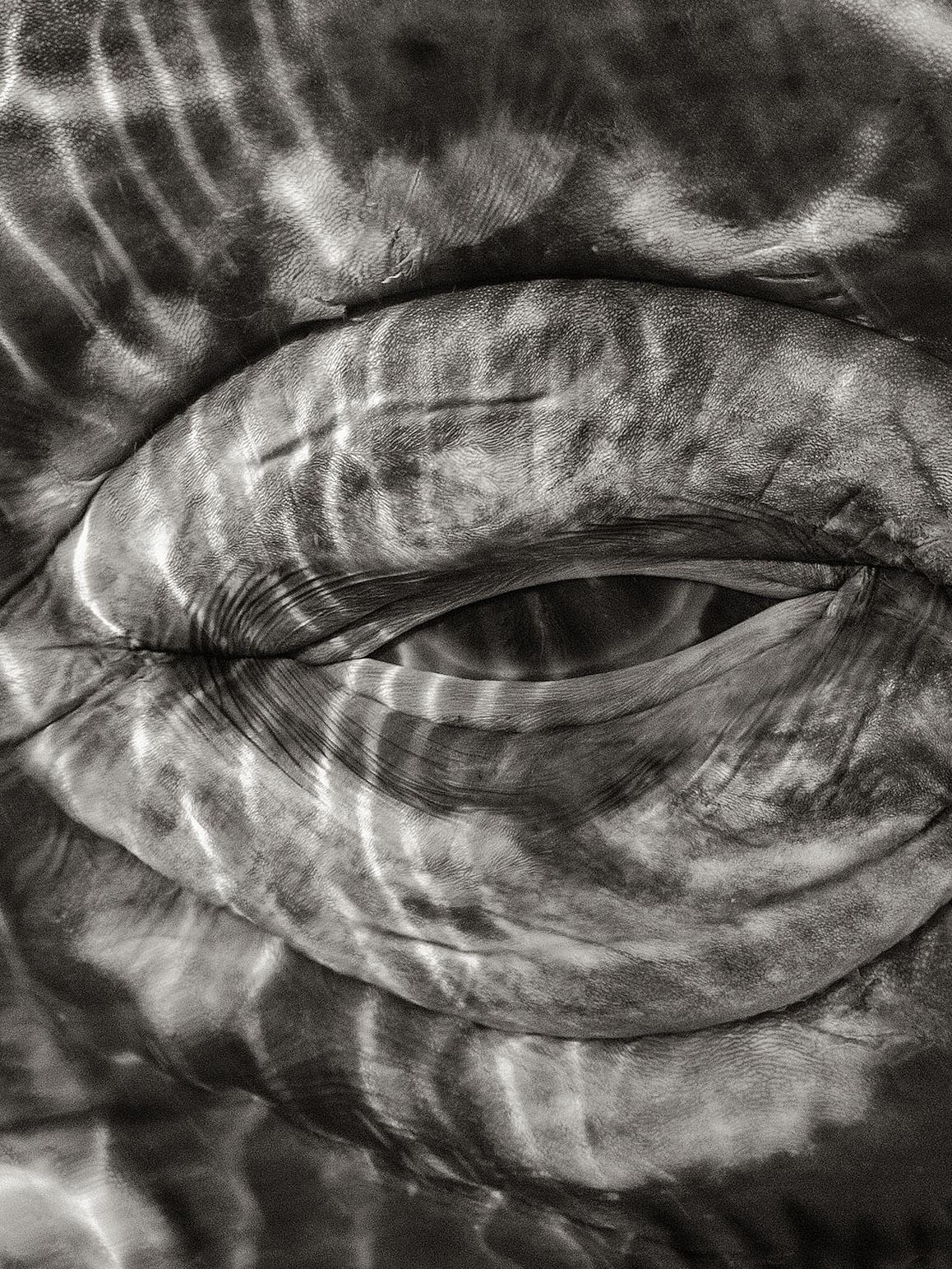


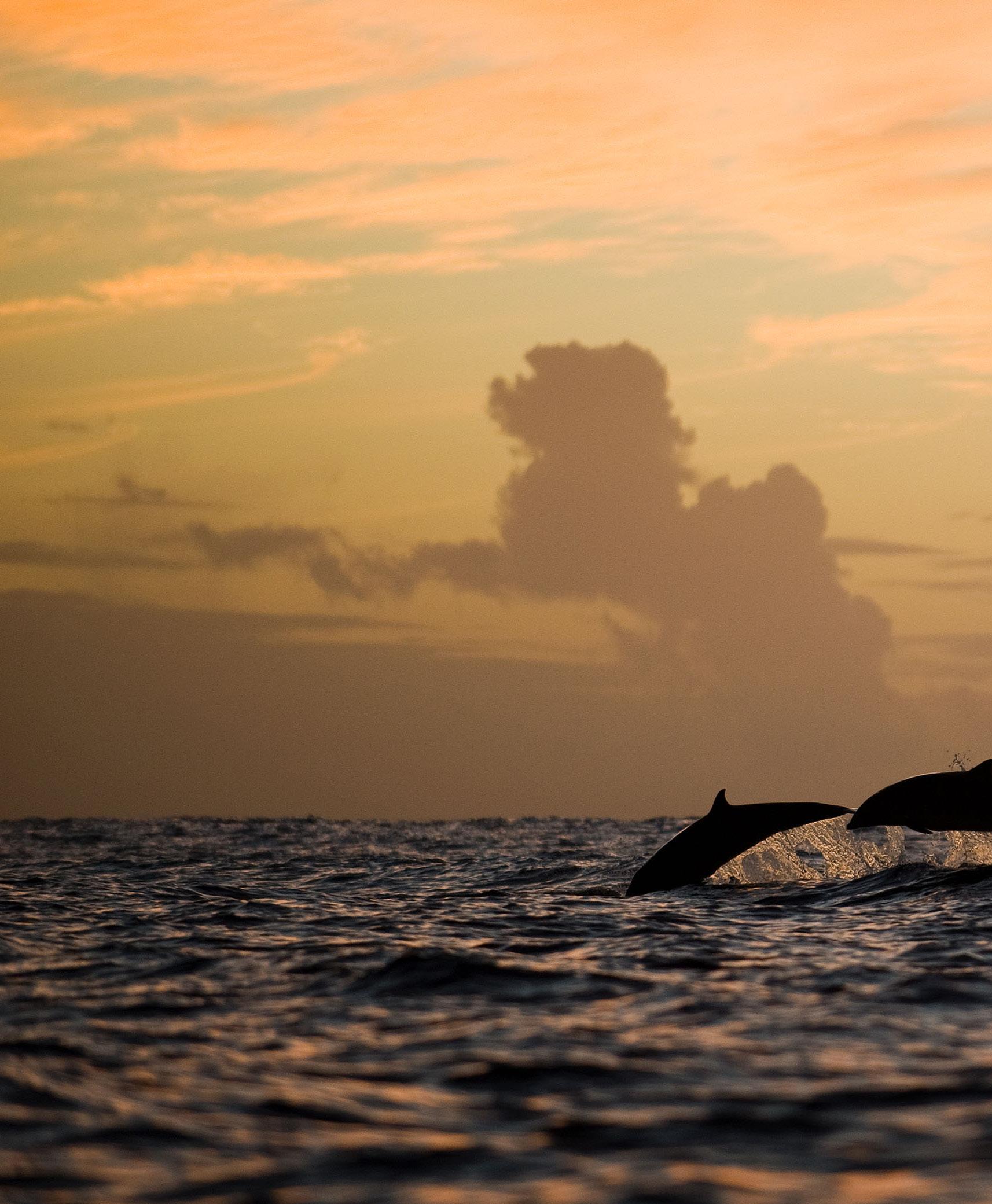
It’s been another busy and productive year for WDC, and I want to give heartfelt thanks to each and every one of you, our supporters, for your steadfast and ongoing commitment and generous support of our work.
Everything that we achieve for whales and dolphins is thanks to you and we’re so grateful that you’re part of it.
Whales and dolphins help to keep our ocean healthy. A healthy ocean gives us a fighting chance of repairing the damage humankind has inflicted on our shared planet. We’re all in this together and we have to fight to protect these amazing creatures as if our lives depend on it – because they do.
With thanks,
This Review is a positive reminder of all the good things we did together and why we get up each day to do them. It also serves to highlight hope for the whales and dolphins that face human-made threats every day, and hope for us humans too as we deal with the growing issues around climate breakdown.
Chris Butler-Stroud WDC chief executive officer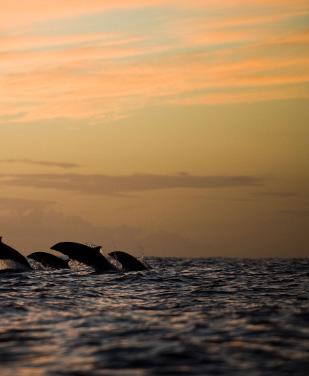
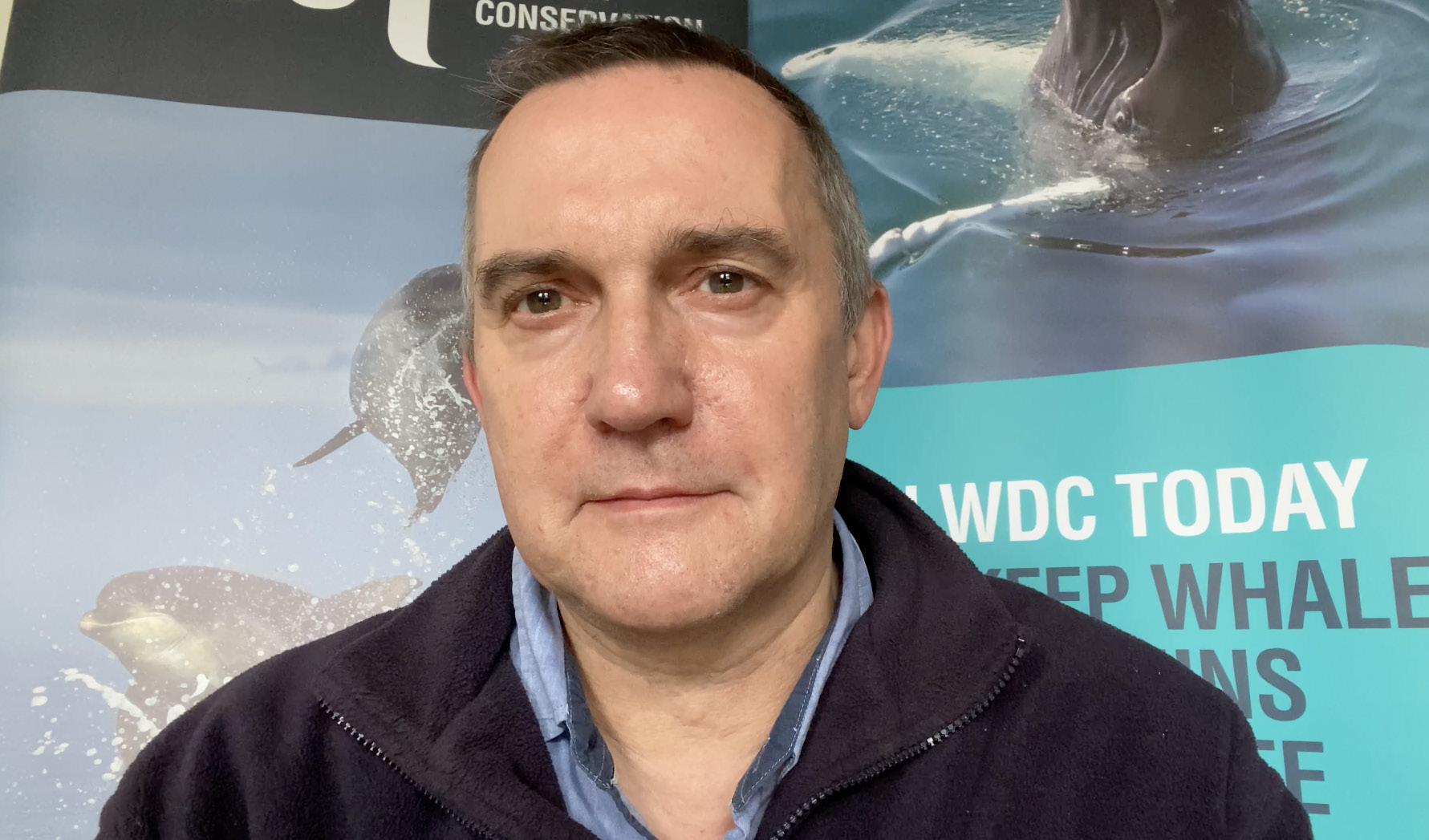
'THIS REVIEW IS A POSITIVE REMINDER OF ALL THE GOOD THINGS WE DID TOGETHER.’
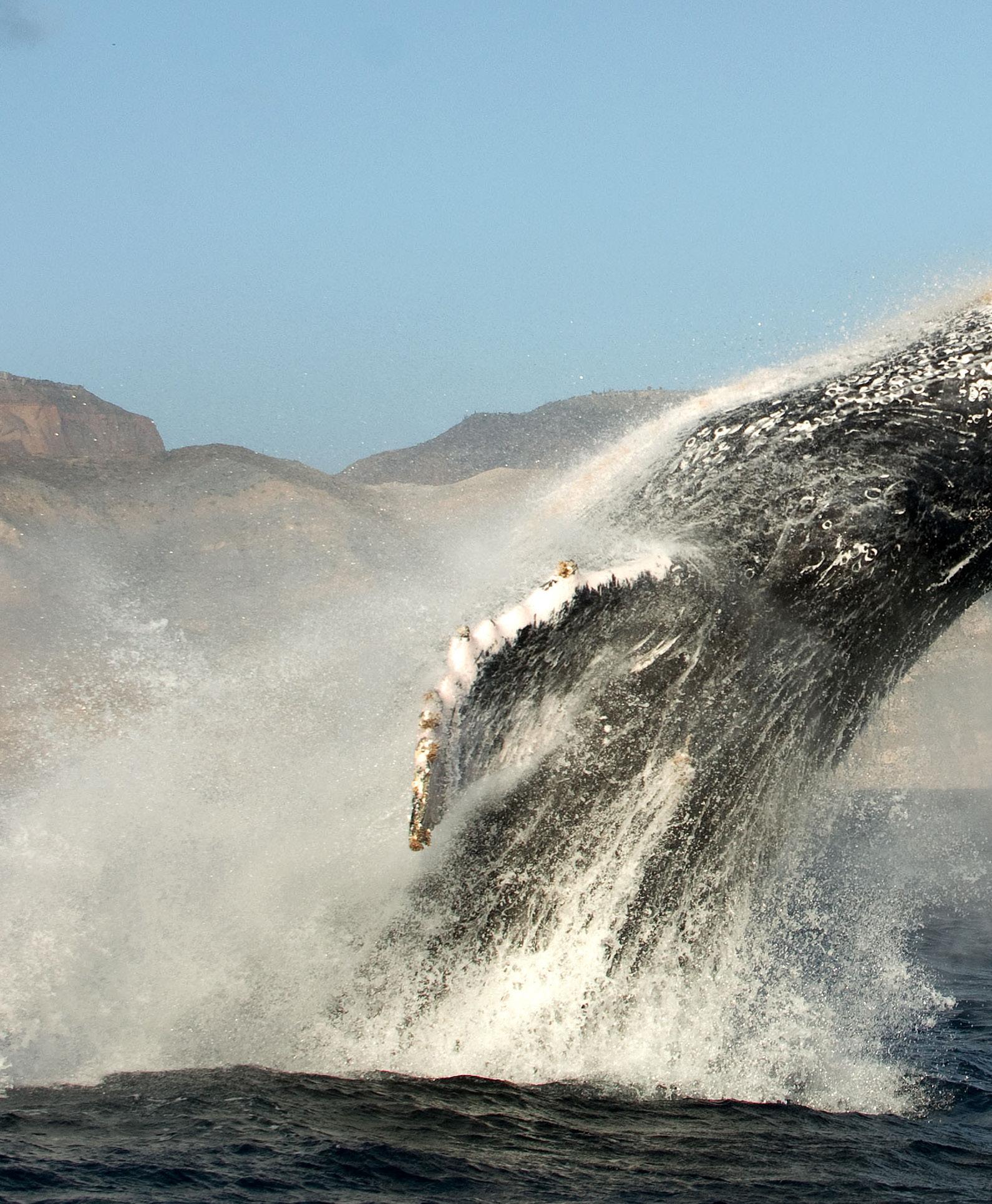
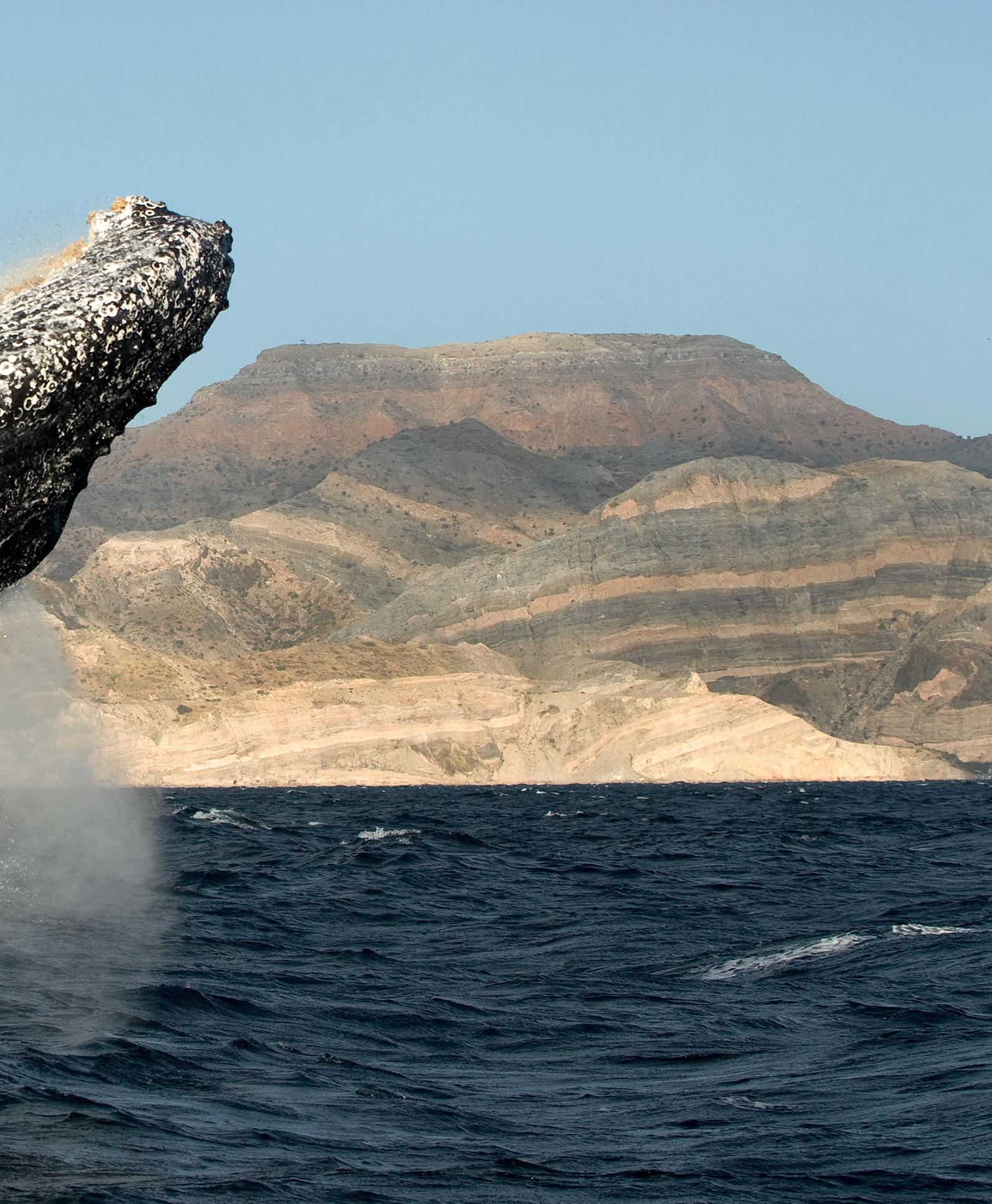
A world where every whale and dolphin
is safe and free
We care deeply about whales and dolphins, and we share this passion with our supporters.
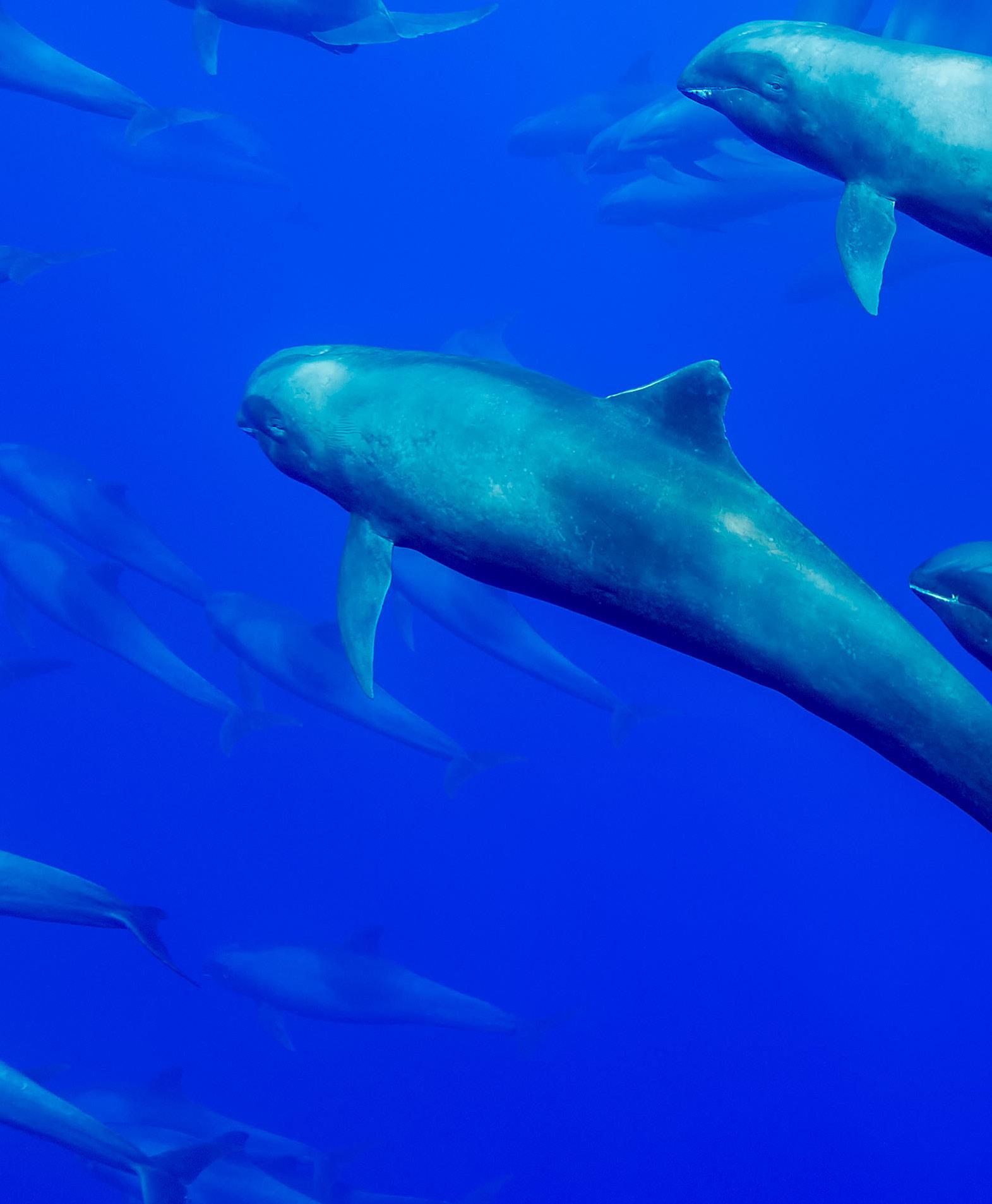
Our work is backed by robust research, science and philosophy. We’re the authority on whales and dolphins, and the threats they face.
WDC doesn’t work alone. Our supporters are at the heart of what we do. We also work with other NGOs, communities and governments to achieve real protection for whales and dolphins.
We’re not afraid to take on governments, big business or industries whose actions harm whales and dolphins.
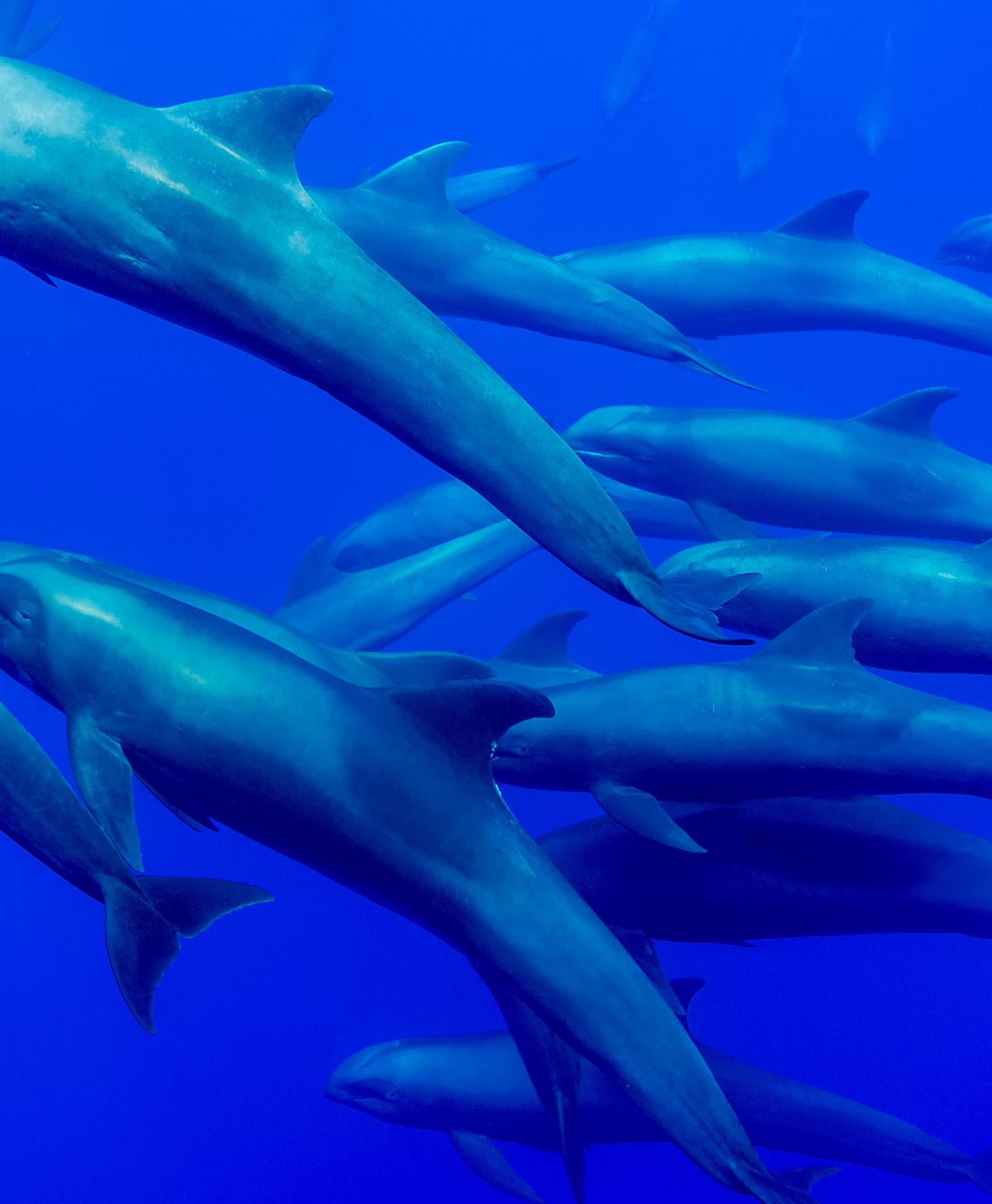
It has long been believed that one of the primary divisions between humans and the rest of life on Earth is culture. But scientists are discovering that the distinction isn’t all that clear.
Like us, whales and dolphins are intelligent beings capable of experiencing pleasure and suffering pain. Many live in complex social groups, communicate in different dialects, engage in play, grieve the loss of family and friends – and they pass on culture through successive generations.
One of the most exciting examples of culture in whales and dolphins is found
among some bottlenose dolphins in Shark Bay, Western Australia.
These dolphins have been studied for several decades, revealing that a specific sub-group of individuals uses complex foraging techniques when feeding, including the use of tools in the form of sponges, which they pick up and carry on their beaks.
This behaviour seems mostly to be passed down from mothers to their offspring – watching their mother sponge-feeding starts very early on.
One study showed that the females who used sponges in this way were
more successful in raising calves than those females who didn’t.
Another sub-group in Shark Bay has learned to lift giant sea snail shells out of the water, after which they tip the fish hiding in them into their mouths.
Other examples of whale and dolphin culture include the song of humpback whales, which is used for communicating and changes over time, just like our own pop music.
We have so much to learn about whales and dolphins, and the more we learn, the more we’re amazed by what we find.
WDC believes whales and dolphins should have special recognition, and deserve the kind of protection that only comes with legal rights
1
In Shark Bay, Western Australia, some bottlenose dolphins dive down to collect cone-shaped marine sponges from the seabed.
3
This behaviour seems mostly to be passed down from mothers to their offspring through social learning. Daily mother and baby schooling in the use of sponges starts very young.
2
They put the sponge over their beaks like a glove as protection from rough surfaces while rummaging for food. They’ll then carry it between locations.
4
Youngsters start wearing their own mini sponges by the age of two or three years.
Our work and campaigns are making a difference when it comes to the ocean. Here are some of our recent successes
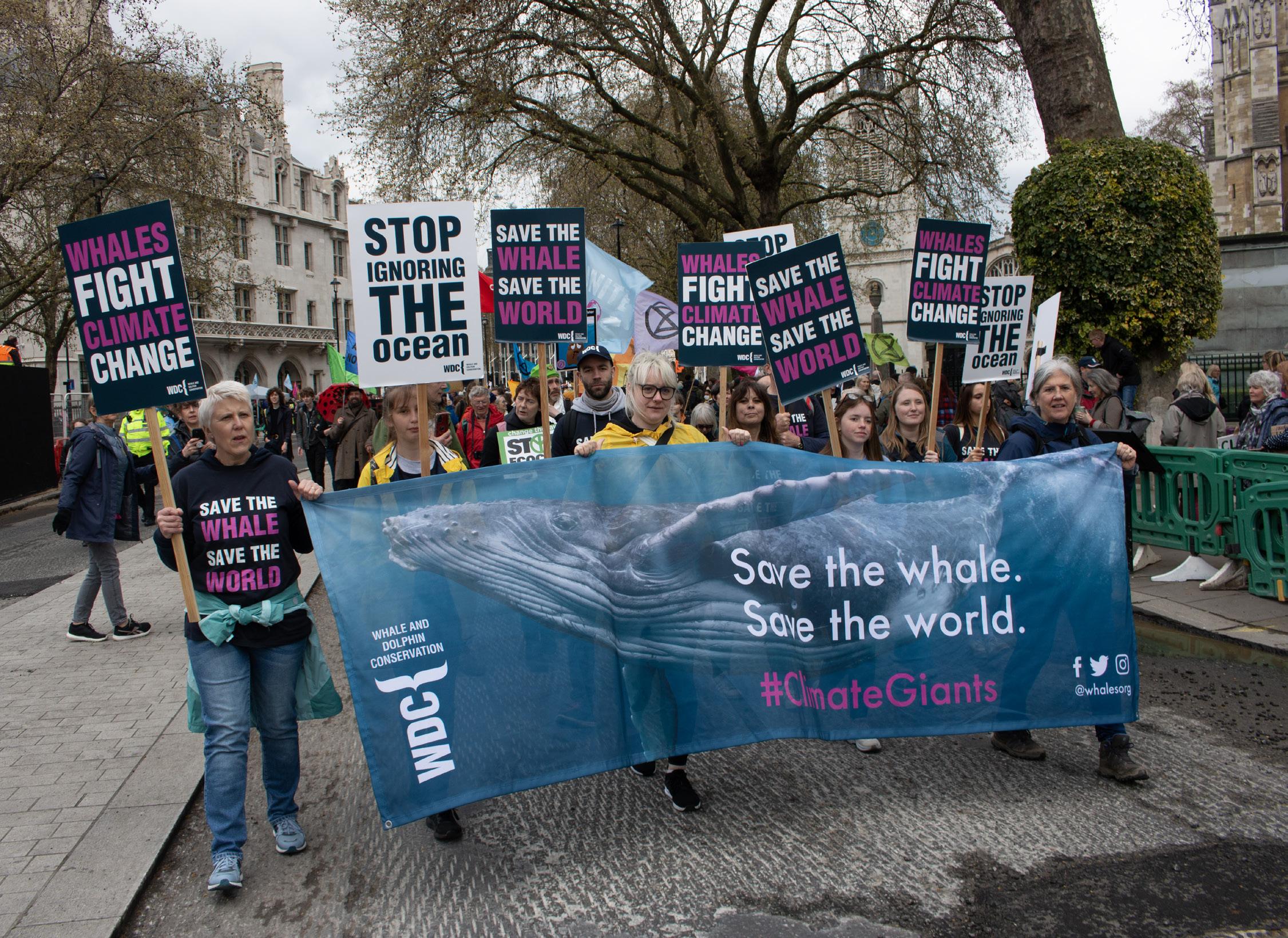
Great news for whales and dolphins in the US came in 2022 when our team there joined the Marine Mammal Stranding Network. They’re now authorised to respond to strandings along a section of the Massachusetts coastline, helping efforts to save marine mammals that may get into difficulties and wash up on the shoreline.
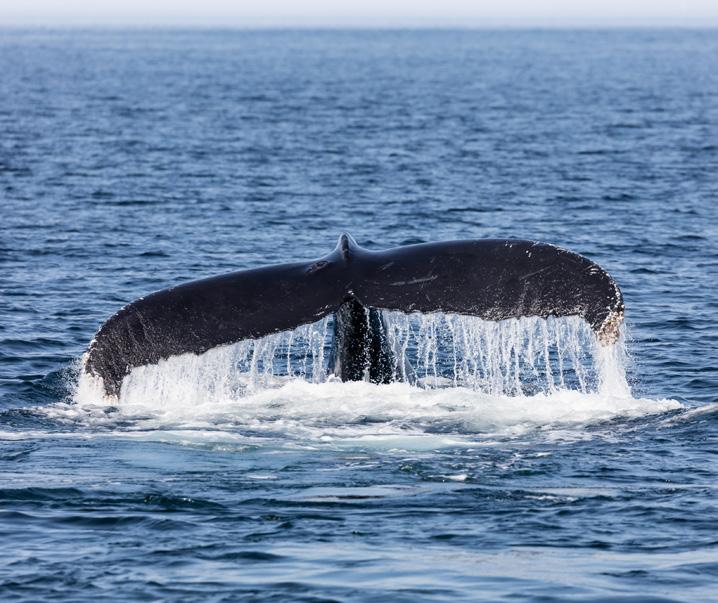
Thousands of whales, dolphins and porpoises wash up on shores across the globe every year.
A live whale or dolphin beached on the shore is almost always in danger of death and requires immediate help. Many strand themselves because they’re old, sick, injured and/or disorientated.
Every year, hundreds of thousands of tourists visit parks and zoos that hold whales and dolphins in captivity, which is why we’ve been campaigning to pressure the travel industry to stop promoting these so-called attractions.
As such, we were delighted with the news that travel giant Expedia had become the latest company to ban the sale of holidays involving dolphins and whales.
In a statement, Expedia announced that ‘attractions and activities that involve performances by, or interactions with, whales and dolphins’ would no longer be available on its website. The company has now fully implemented this policy.
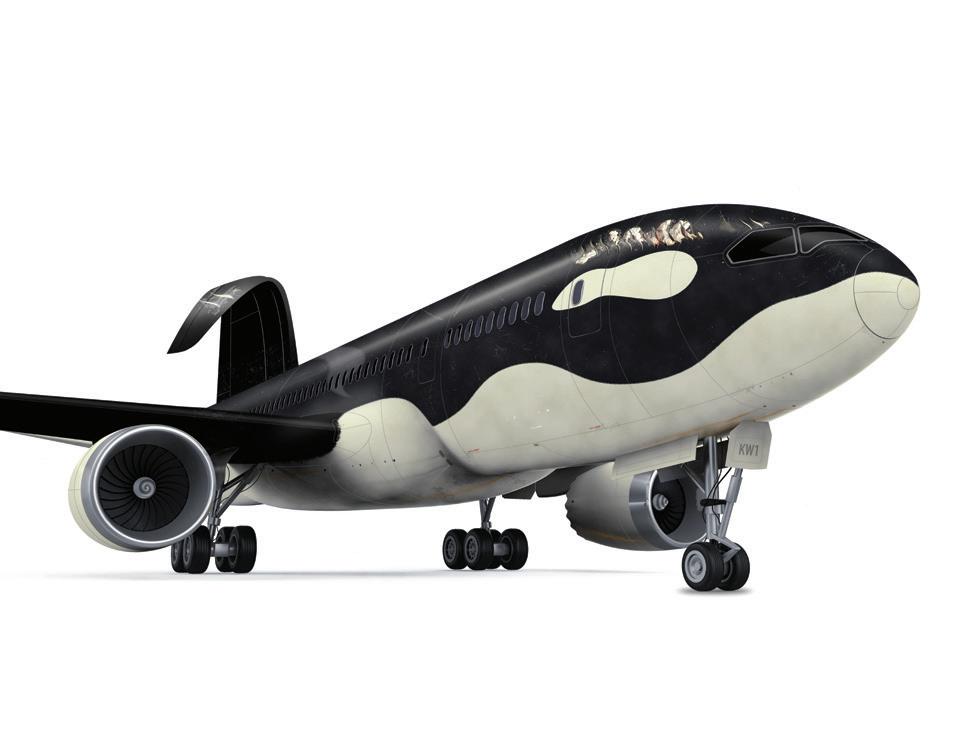
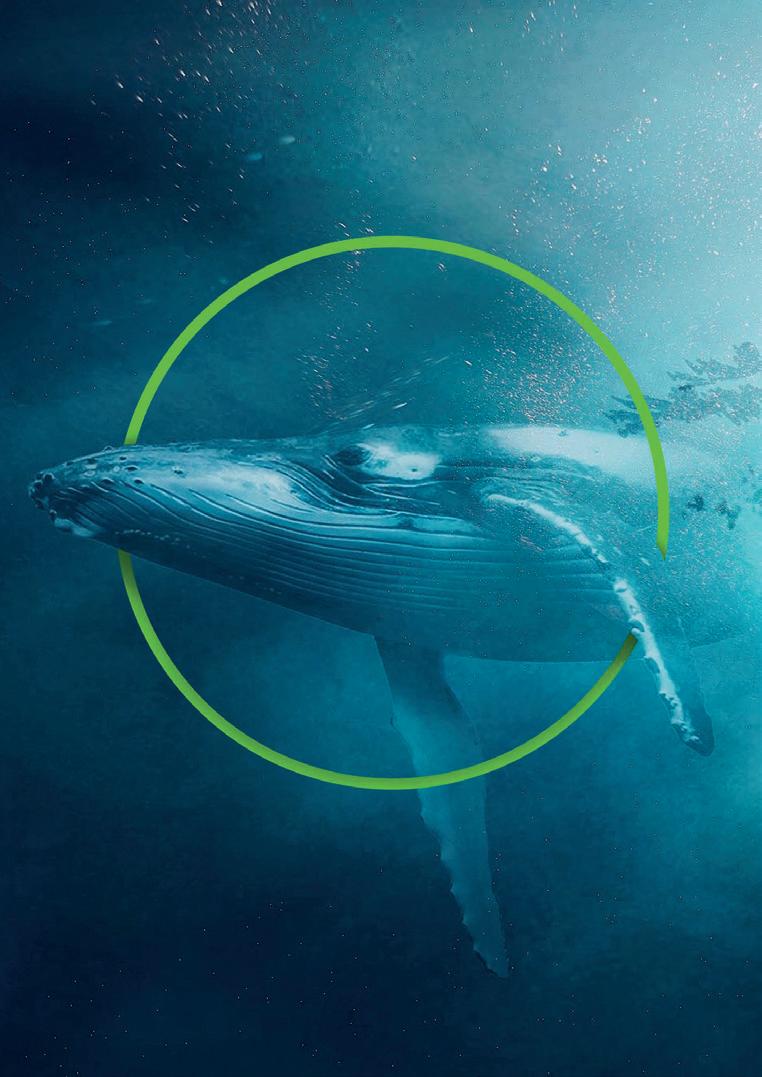
Previously, we’ve helped ban captivity in India, end Virgin Holidays’ support for SeaWorld and prevent beluga whales from being exported to the US for captive facilities. We’ve also helped to create the world’s first ocean sanctuary for whales.
During our #LockdownNeverEnds campaign, more than 20,000 of you signed our petition asking TUI to stop supporting captivity. We’re now looking to meet TUI representatives to explore how we
As part of the drive to raise more ocean-related funding to help increase whale populations and reverse climate breakdown, we’ve continued to work in partnership with global business consultants Deloitte. Together, we exposed just how unrecognised and underfunded ocean recovery projects are. Our joint report, A Drop in the Ocean, shows that investment in ocean-based solutions to help tackle climate breakdown is literally a drop in the ocean.
Published to coincide with Finance Day at the COP26 UN Climate Change Conference in Glasgow in 2021, Deloitte’s research shows that the role of the ocean in climate mitigation and adaptation is largely unrecognised by business and policymakers, with natural climate solutions receiving less than 3% of all climate finance and the ocean receiving less than 1%.
It’s illogical to overlook the ocean when it comes to finance because it provides more than half the oxygen we breathe, makes up 71% of the planet’s surface and is our largest carbon sink.
Governments around the world pay organisations US$4 to US$6 trillion to exploit nature, instead of protecting it.
To view A Drop in the Ocean, click here
‘When offered a path that averts total economic collapse and gives huge reward for little investment, why choose to look the other way?’
MIKE BARBER, CLIMATE AND SUSTAINABILITY PARTNER AT DELOITTEA drop in the ocean Closing the gap in ocean climate finance Mike Barber, William Mitchell, Tassilo von Hirsch, Tarunika Vyas November 2021
More than 20,000 of you signed our petition asking TUI to stop supporting captivity
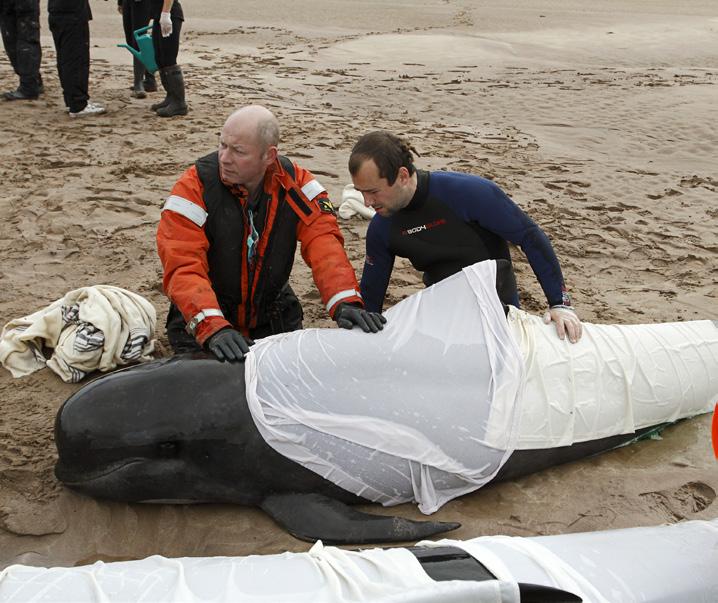
As more people visit the coast and take to the water, the potential for harm to whales and dolphins is on the rise, especially during peak holiday times.
For many people, encountering whales and dolphins while on the water is an amazing experience, but incidents of disturbance are increasing. Many water users on jetskis or paddleboards, or in
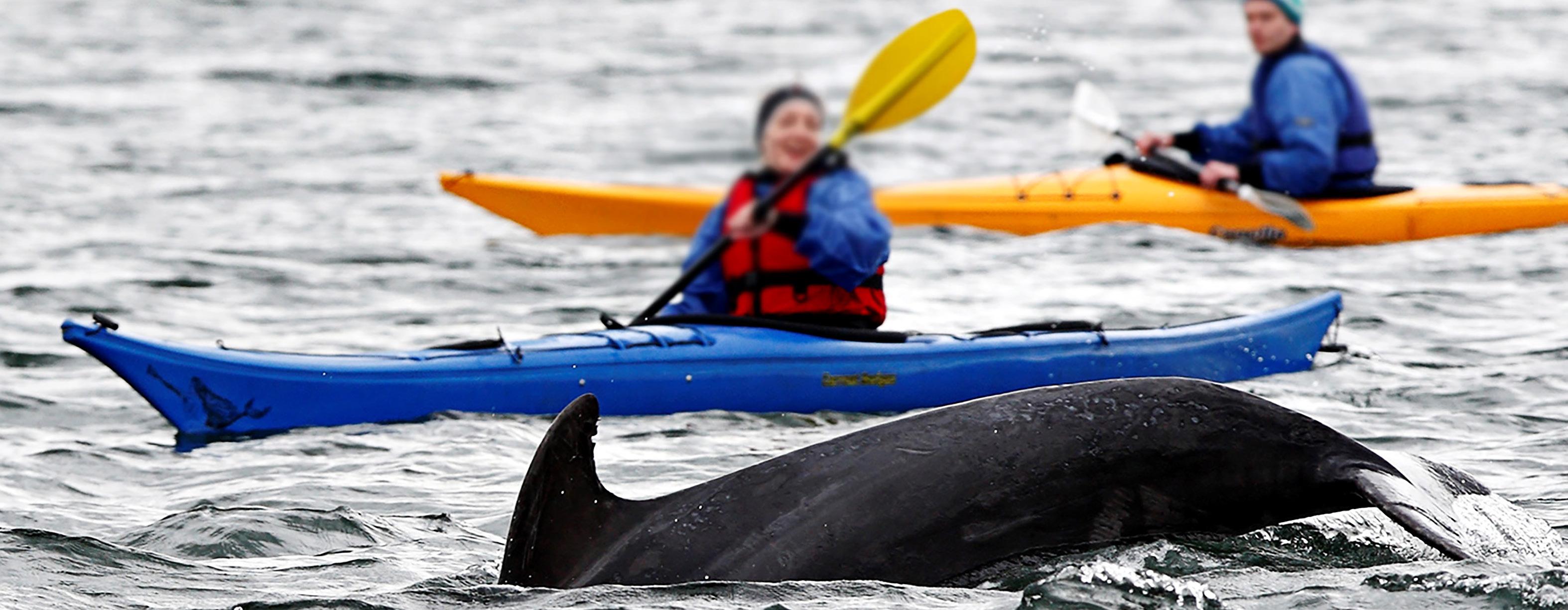
kayaks simply don’t know what the rules are or how to report incidents. Disturbances in Cornwall alone have tripled since 2014.
By getting too close and disturbing whales and dolphins, recreational water users could affect the health of these creatures, which could prevent them from raising their young, eating and breeding. Our ongoing awareness
drive has received widespread media attention. We’ve been highlighting flawed legislation, wildlife crime reporting and prosecution processes, which means that cases frequently aren’t recognised and can’t be accurately counted. We’re currently working with the UK Government on a new code of conduct to help guide public behaviour on the water.
Following the long-running Stop Sea Blasts campaign we’ve supported, the UK Government has recommended that methods used to remove unexploded bombs in the sea should be changed to drastically reduce the underwater noise caused when a bomb is detonated, and so protect whales, dolphins and porpoises.
It’s thought that around 100,000 tonnes of unexploded wartime munitions still sit on the ocean floor in UK waters. Scientists calculated that detonations in the North Sea are injuring and possibly killing thousands of porpoises every year. The disposal blasts can damage marine mammal hearing and affect
navigation and communication within their groups. This can lead to stranding on shorelines.
The new government policy paper states that the effects of noise associated with blasts are ‘key environmental concerns’ and that alternative, lower-noise methods were preferred.
While it’s good news that whales and dolphins may now be protected from munitions exploding underwater, there are still some unanswered questions around the use of deflagration, including potential for toxic pollution. Nevertheless, there should be less noise pollution as a result of this decision.
We’re supporting the ground-breaking Scottish Entanglement Alliance (SEA) project that helps to reduce entanglement of whales, dolphins and other marine mammals in creel fishing gear in Scottish waters.
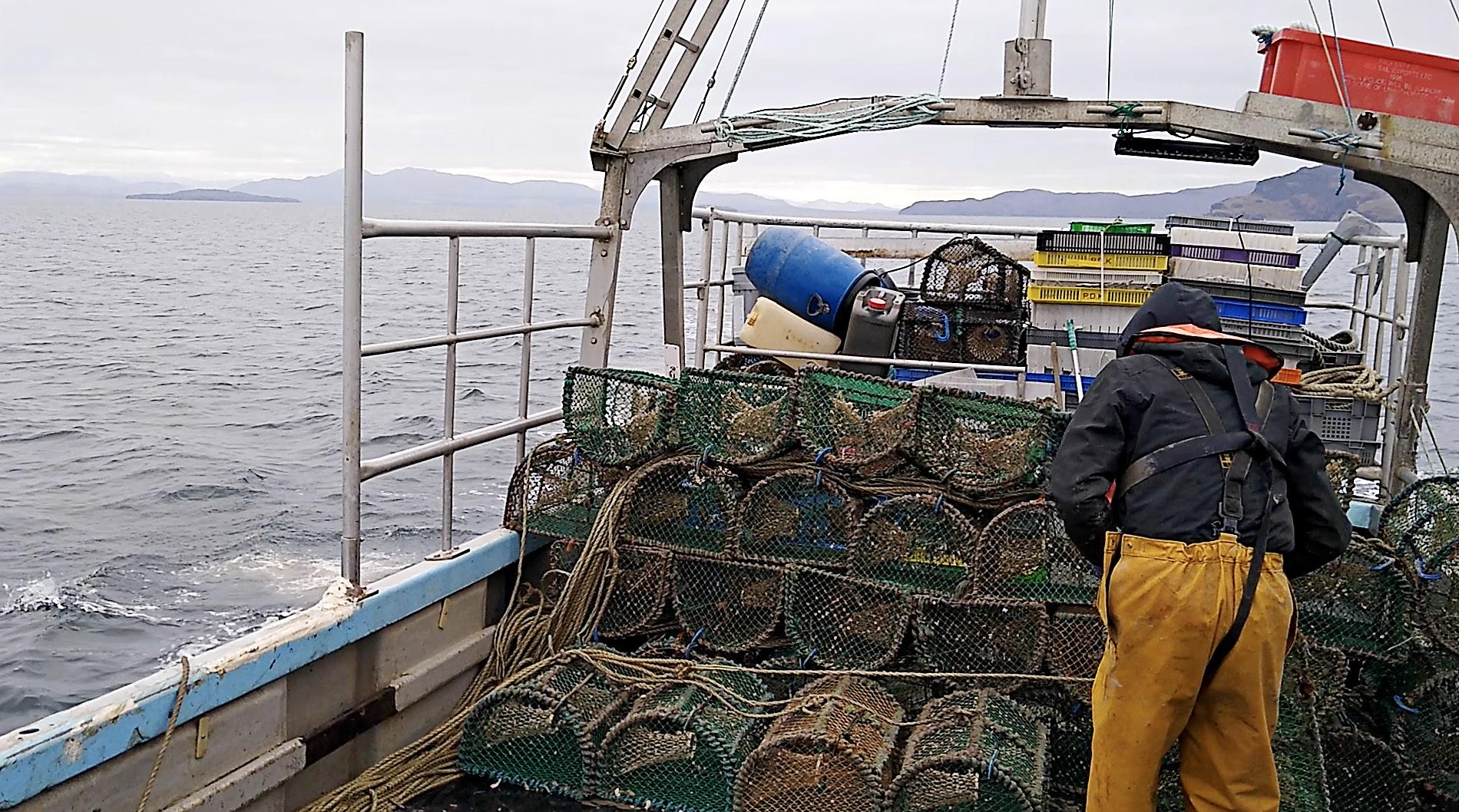
Entanglements in fishing gear and marine debris can have both welfare and conservation impacts for whales and dolphins. It’s the largest identified cause of death due to human activity in minke and humpback whales in Scotland. During at-sea surveys, more than 22% of live minke whales observed on the west coast of Scotland showed evidence of previous entanglements.
As part of the SEA project, we’ve been talking to creel fishers about their fishing practices and experience of entanglements. We’re also offering them training workshops to reduce entanglement risk and safely disentangle large marine mammals such as whales from fishing gear. This training has given fishers the ability to call on each other and safely provide a rapid response to any entanglements.
We were delighted that the initiative was also recognised by the fishing industry, winning a runners-up prize in the sustainability category at the 2022 Fishing News Awards.
We’re bringing together fishers and scientists to develop ways to reduce the problem of entanglement in creel fishing ropes. These ropes link crab or prawn pots under the water to create fleets with ground line ropes. The ground lines are made from buoyant rope that floats in loops between creels and can entangle whales and other marine creatures such as basking sharks and turtles.
In our trial project, the buoyant ground lines are replaced with sinking lines that remain close to the seabed. It’s a simple, low-cost measure that could result in a significant long-term reduction in entanglements. If these trials are successful, the use of sinking lines could be rolled out throughout the Scottish creel fishing fleet.
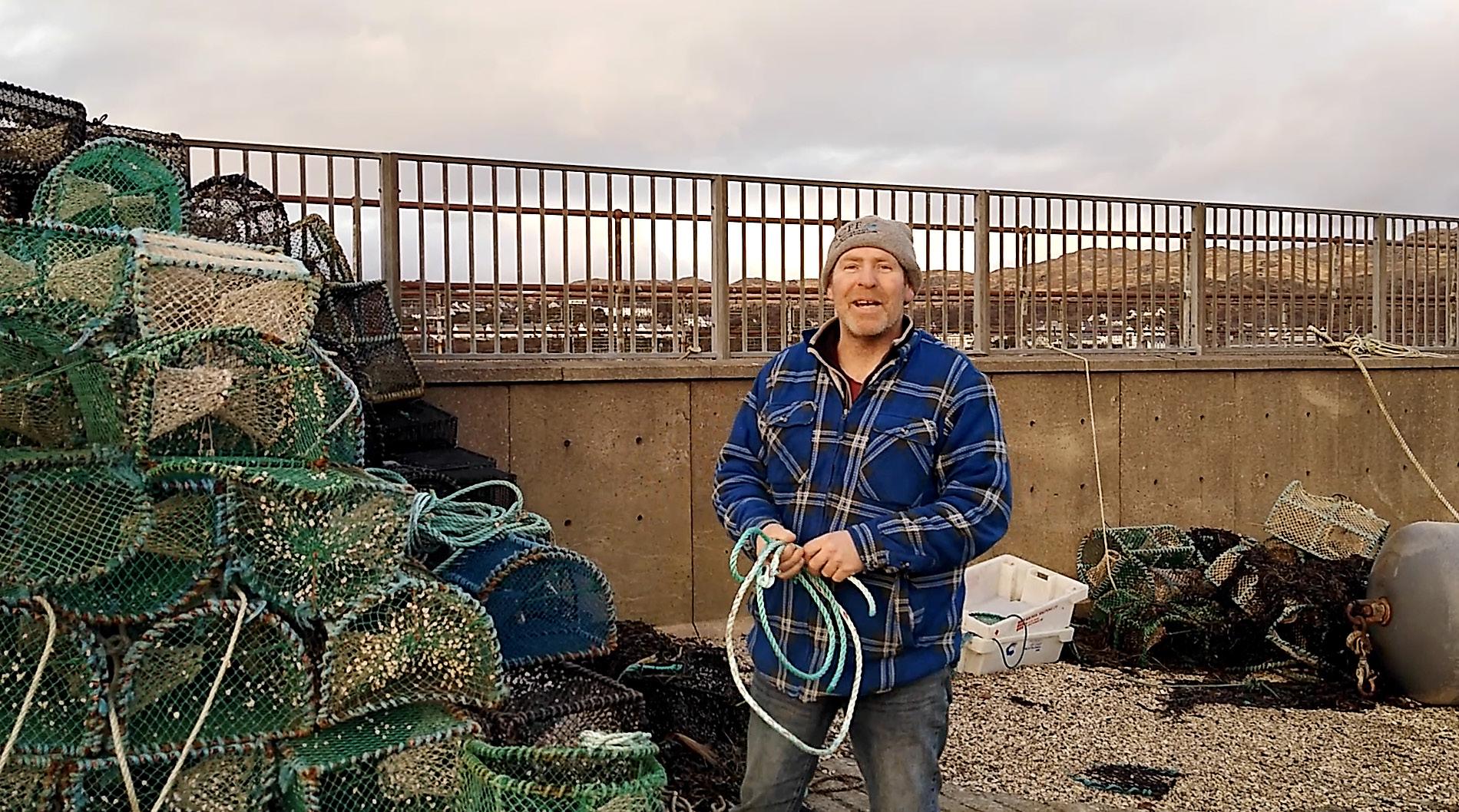
Supported by NatureScot/European Maritime and Fisheries Fund
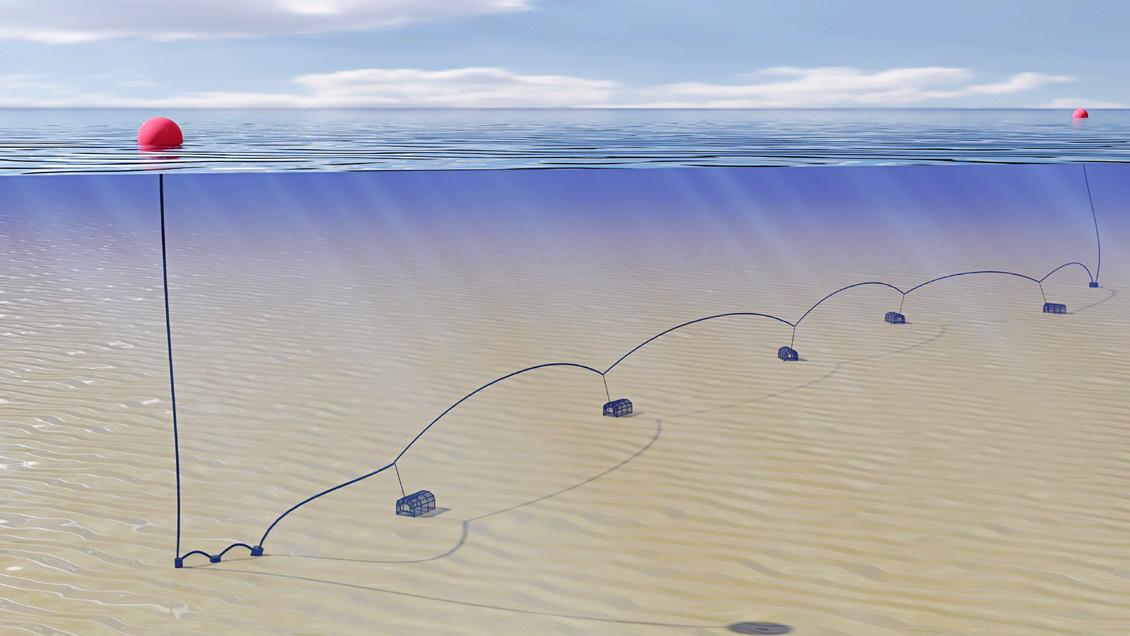
Tesco, the UK’s largest retailer, became the latest supermarket to join WDC, the Sustainable Fisheries Partnership and the Royal Society for the Protection of Birds in our joint initiative to get supermarkets and food brands to sell only fish and shellfish that come from sources using best practice, and that don’t harm whales, dolphins and other marine wildlife.
As part of this work with Tesco, an audit of its seafood suppliers was carried out to assess the risk
Together with our conservation partner in Iceland, Hard to Port, we alerted government officials to disturbing evidence of grenadetipped harpoons failing to explode when they’re fired into fin whales by whalers during ongoing hunts. These appalling acts are a violation of the Icelandic Whaling
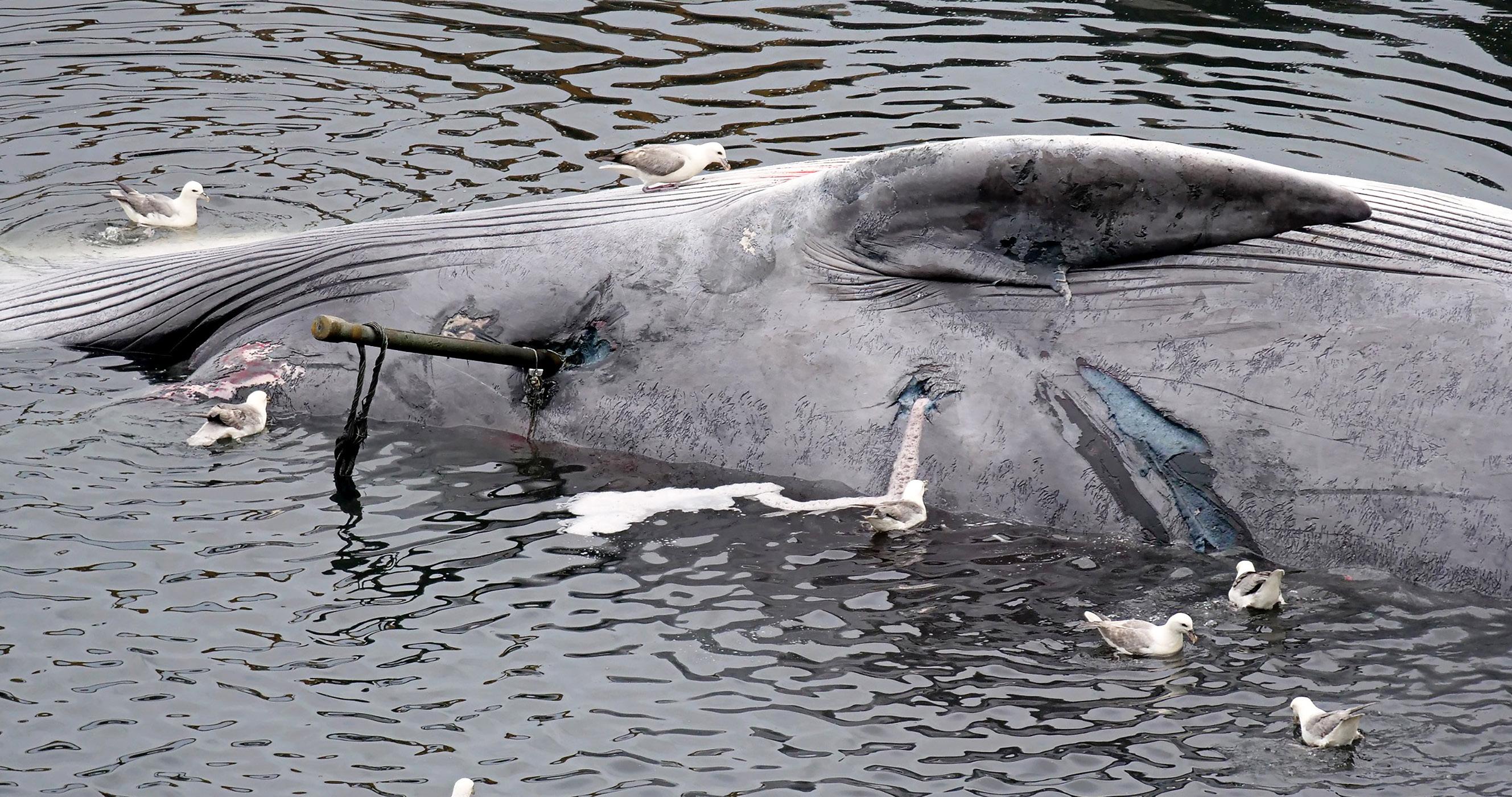
posed from bycatch in commercial fisheries. Bycatch (or incidental capture in nets) is the biggest direct killer of dolphins around the globe and a huge issue in UK waters, yet many consumers are unaware of the problem.
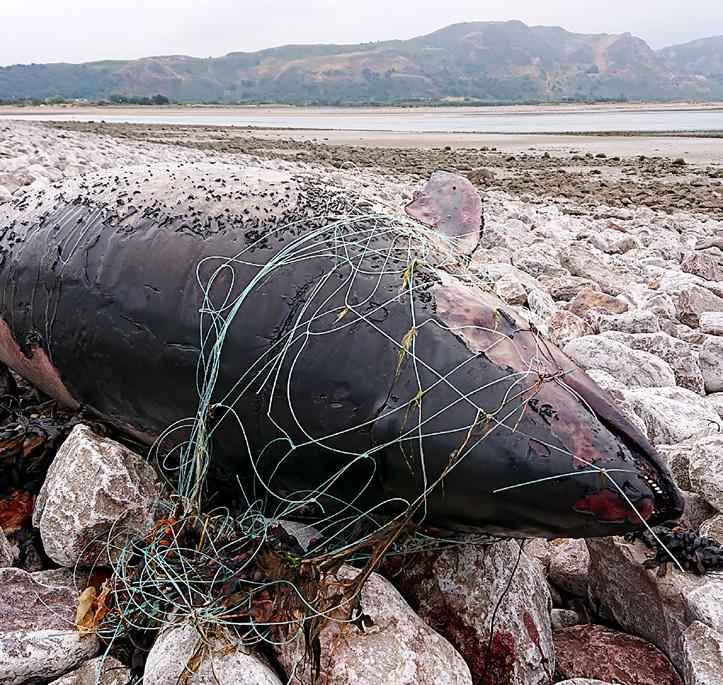
The audit identified bycatch risks in Tesco’s supply chain and will help to inform where it buys fish for its supermarkets in the future so that fewer whales and dolphins are harmed.
and Animal Welfare Act and, after we highlighted these practices, fisheries minister Svandís Svavarsdóttir issued a regulation requiring her officials to begin onboard monitoring of the hunts, a move that could bring the hunts to an end in the future.
Readers of WDC’s Whale & Dolphin magazine donated nearly £8,500 to help end hunting in the Faroes and Norway
It was another busy year in 2022 and once again, we were astounded by the generosity of all our wonderful partners
During 2022, we continued to receive valuable support for our Climate Giants Project from some of our most loyal partners at Animal Friends Pet Insurance,
BRITA Iberia, BRITA UK, GoCardless, Livework, Nash & Co Solicitors, Waipapa Bay and WhaleFin. Their support has enabled us to accelerate our
conservation efforts, boost research funding and increase our outreach as part of our ambitions to gain greater protection for whales. It will make a huge difference.
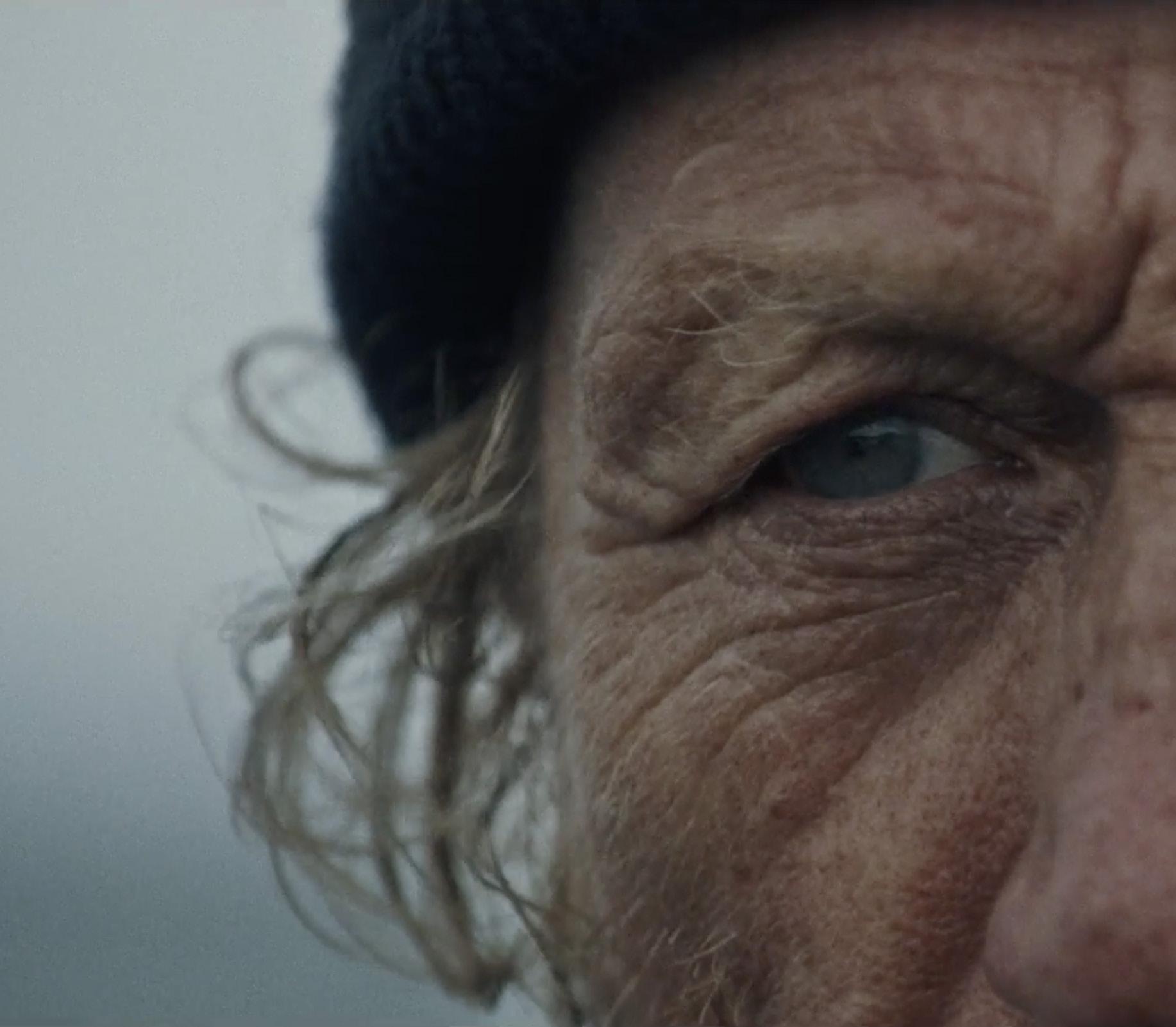
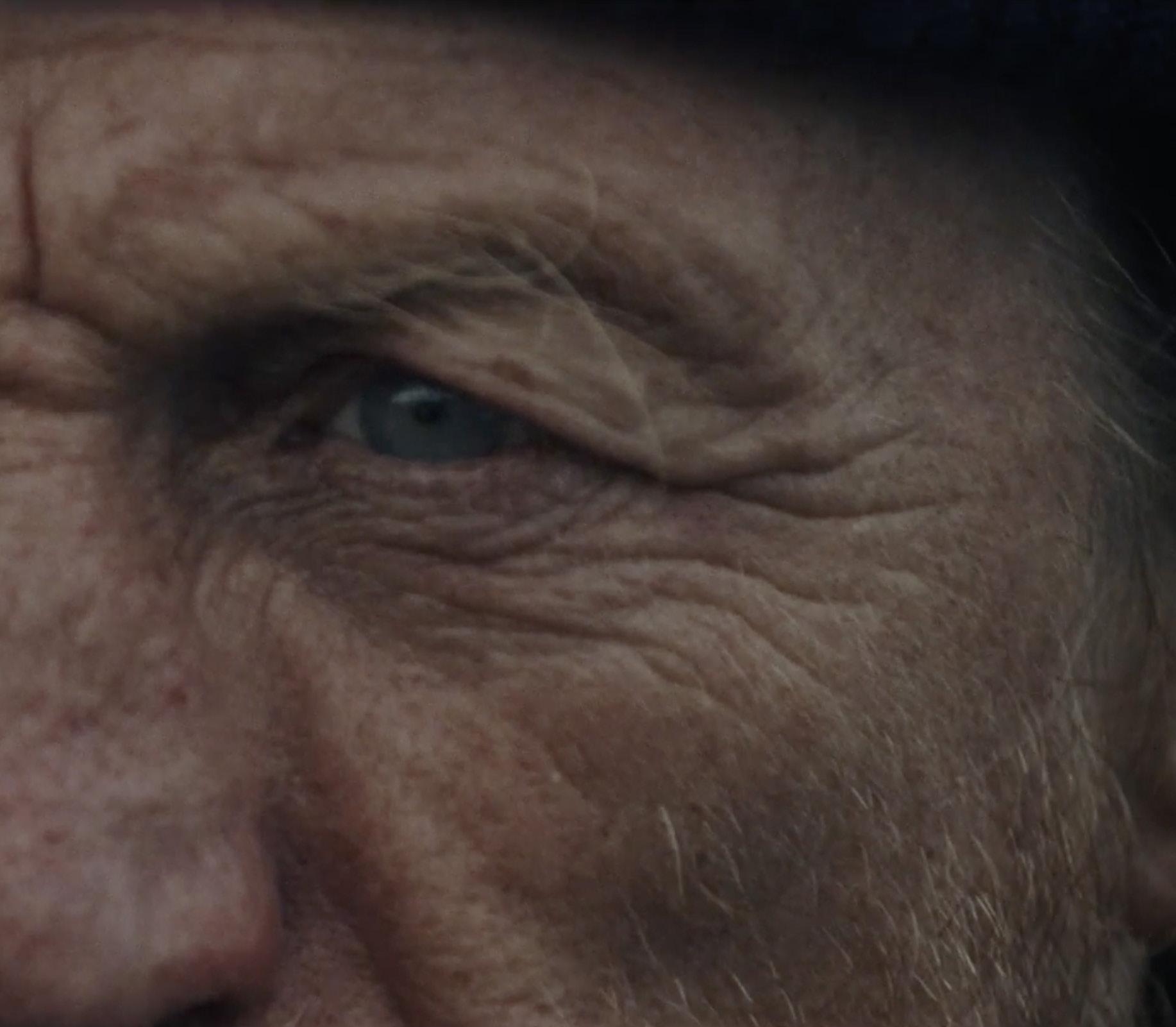

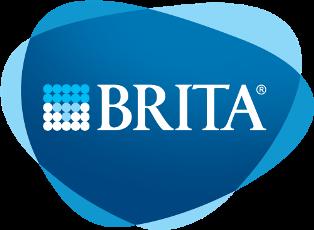

As part of an ongoing partnership with BRITA, we launched a children’s book to combat feelings of climate anxiety, after research revealed that more than two thirds of kids are worried about the future of the planet. The book is titled The Whale Watchers and is written by Dougie Poynter, bassist from pop band McFly and author. It was supported by teaching resources to educate pupils about the important role whales play in our fight against climate change and how we can help to protect them. WDC is benefitting from book sales but the impact of The Whale Watchers extends much further than just funding. It’s created a long-lasting legacy to protect oceans for future generations of people and wildlife, and inspire the next generation of conservationists.
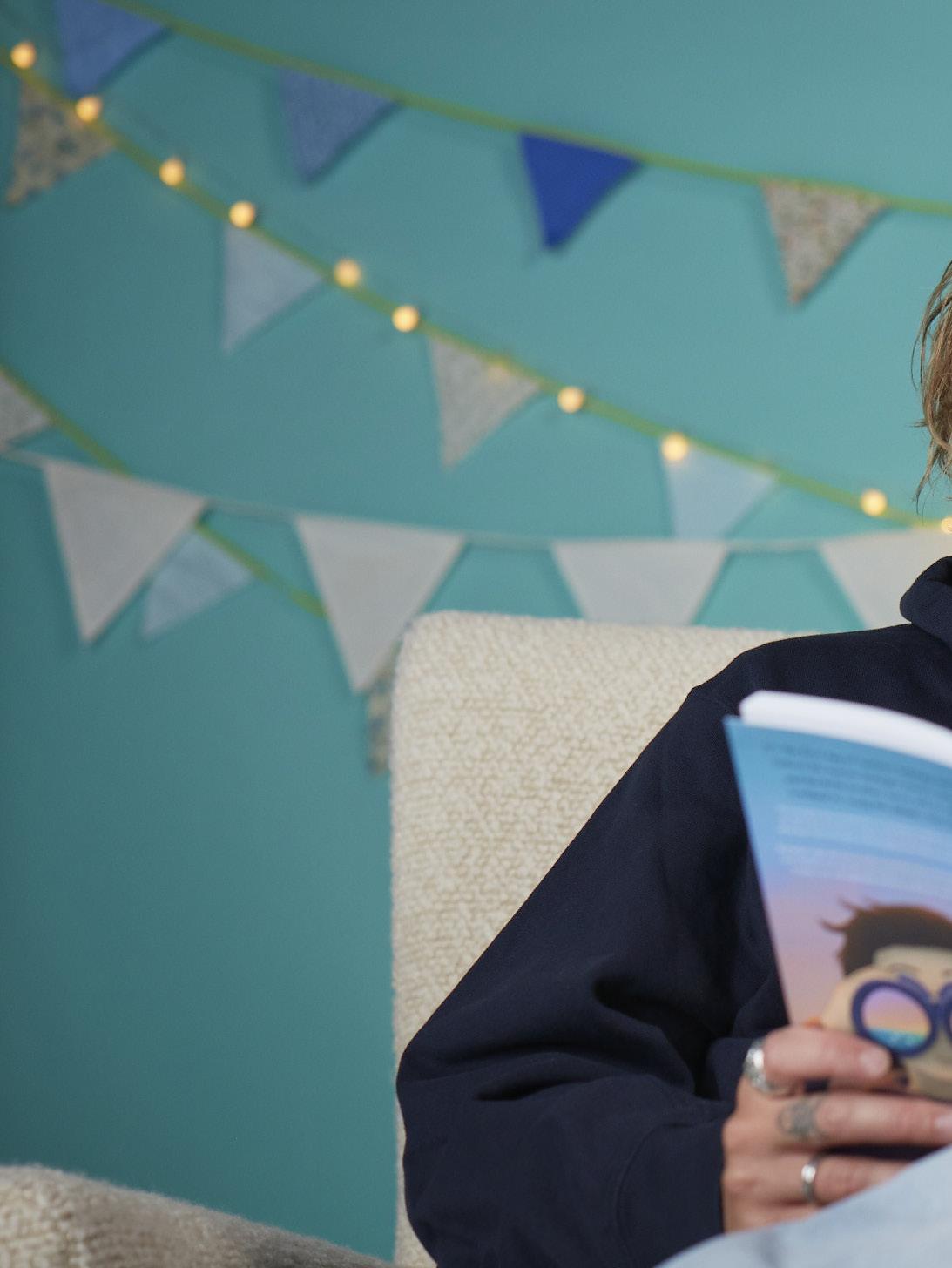
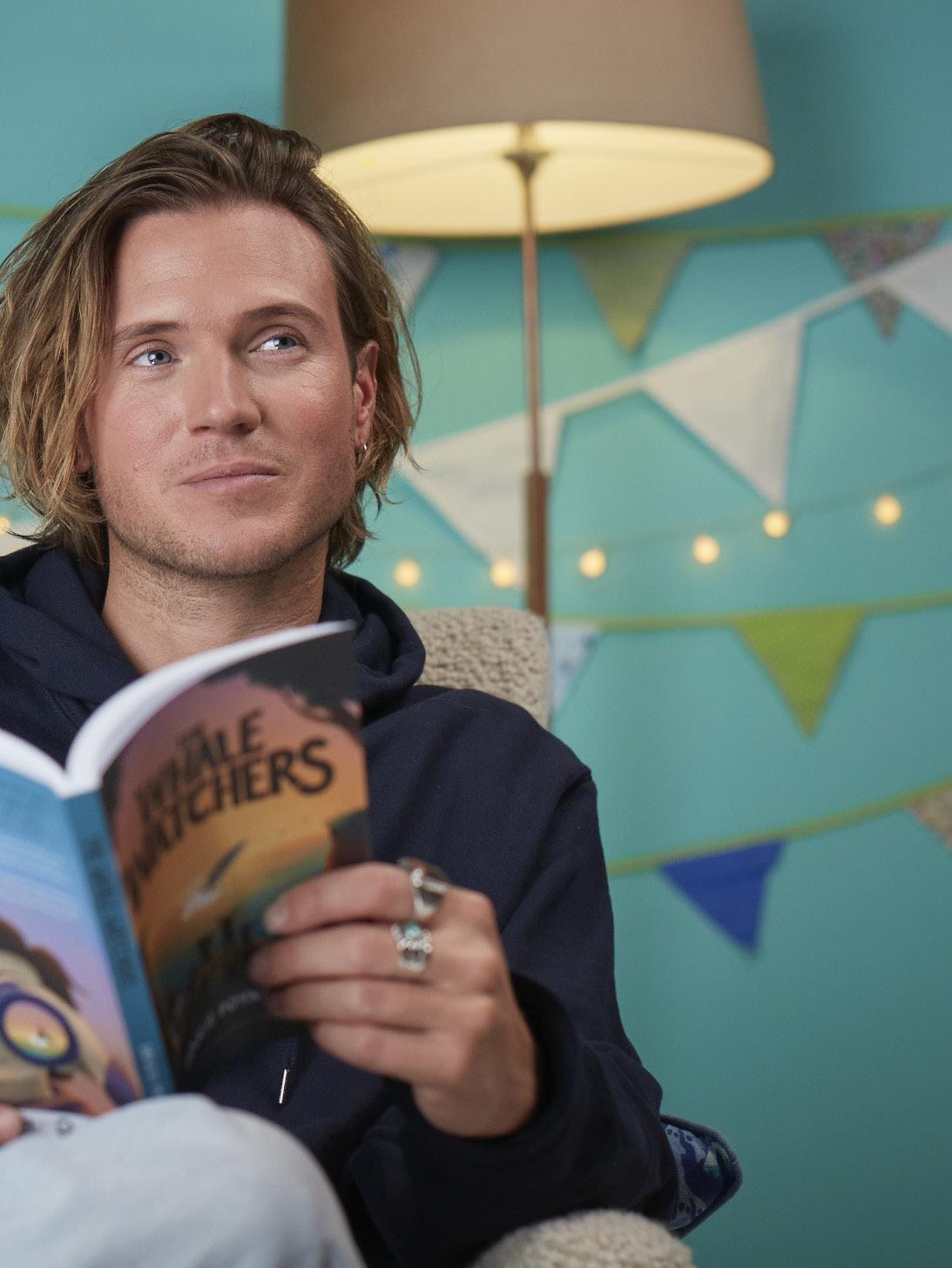
To bring in the festive cheer in December, ongoing supporters of WDC The Yogscast once again hosted the world’s biggest charity gaming event, The Jingle Jam . During the event, Yogscast viewers could support the 12 chosen charities by purchasing the Jingle Jam 2022 Games Collection, which contained more than 85 games worth more than £1,000. These were kindly donated by games developers and publishers from all over the world. Over the course of two weeks, The Yogscast raised more than £3.4 million for their 12 chosen charities, including a whopping £316,000 donation to WDC. This massive donation will make a huge impact on our work in Scotland, including three vital projects: expanding our citizen science programme (Shorewatch), enhancing our exhibitions, education opportunities and displays at our Scottish Dolphin Centre, and helping with our work tackling chemical pollution.

WDC is lucky to have been a Jingle Jam featured charity since 2016, raising more than £1.6 million to protect whales and dolphins from the threats they face.
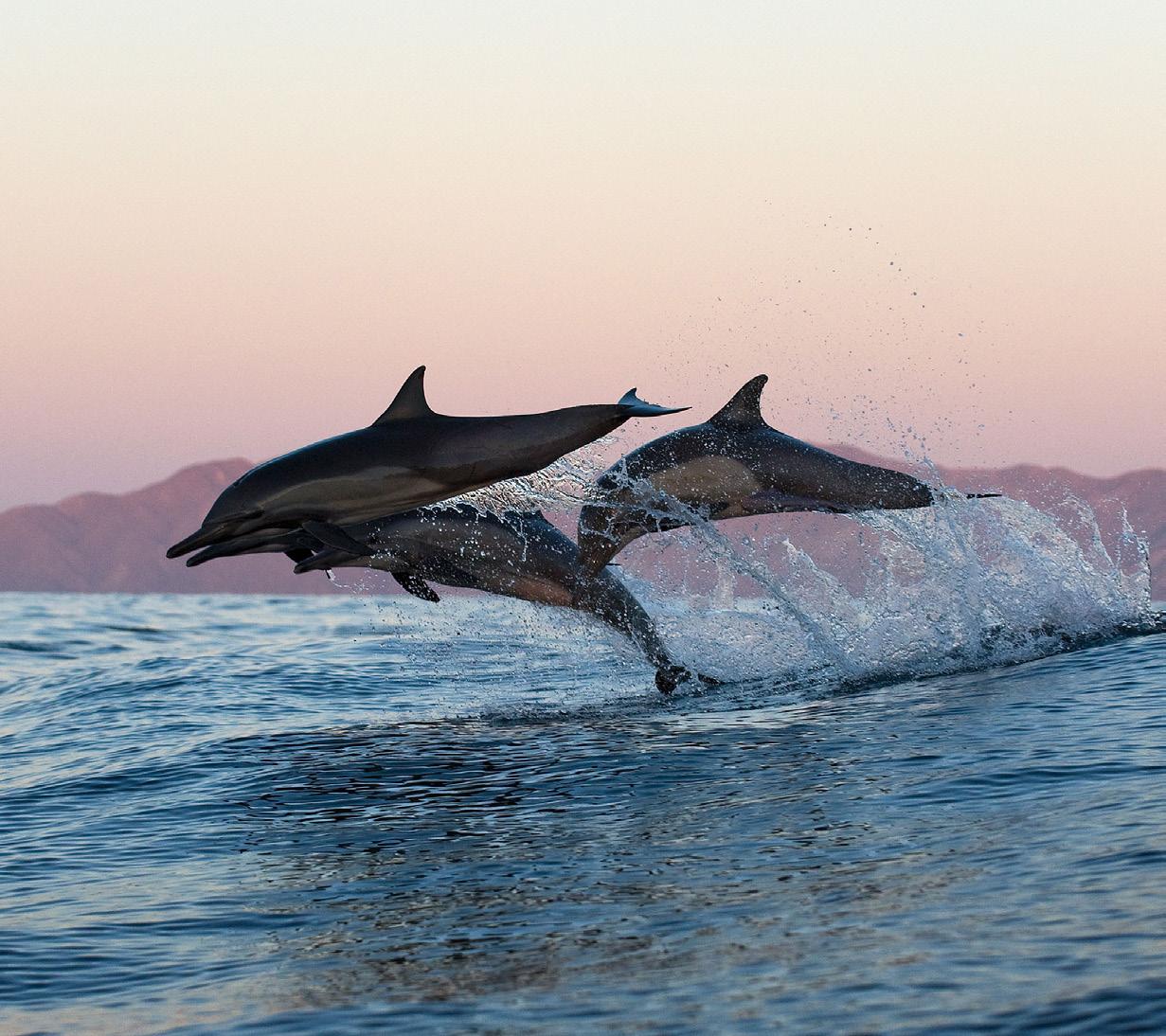
To celebrate World Oceans Day in June, WDC teamed up with UK video games publisher Curve Games to host our biggest ever multi-title Steam sale. Steam is the leading online video game store, developed and published by Valve Corporation .
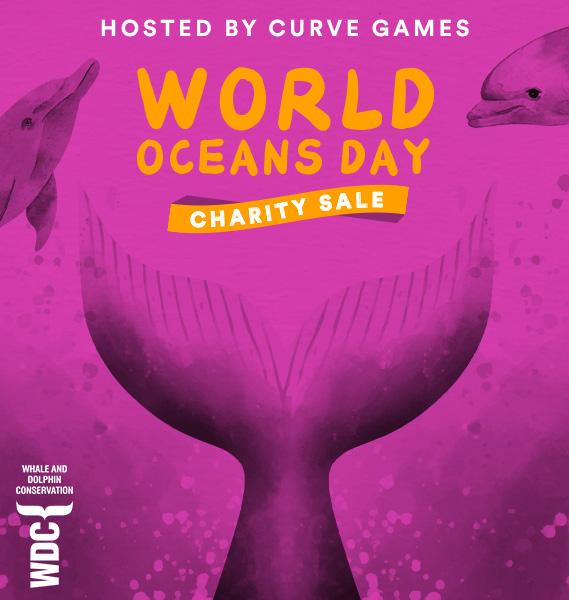
The collaboration resulted in more than 40 games titles from over 20 games studios and raised an incredible £40,000 to protect whales and dolphins across the globe. Some of our most successful results were on social media and so the impact it had for our partners was widespread.
‘It’s amazing to see so many games companies coming together to support WDC for World Oceans Day,’ said John Clark, CEO of Curve Games. ‘What’s more amazing, however, is how WDC works tirelessly to protect the ocean and create safer environments for whale and dolphin populations. Creating a healthy ocean and protecting whales and dolphins is so important to us all and Curve is delighted to be involved in such an important initiative.’
A special thank you to Curve Games and Valve for their support with curating the sale.
In addition to supporting our efforts to help businesses understand the role of whales in tackling the climate and biodiversity crises, and how they can take positive action, our partnership with Deloitte has also been vital in helping us develop the skills and expertise of individuals and teams at WDC – helping build our efficiency and resilience in challenging times.
The partnership has helped us to innovate, too – through Deloitte’s Gravity Challenge programme we are now working with the tech sector to help us integrate new conservation tools, like AI and satellite images, into our work to protect species like the endangered blue whale.
We’ve also been fortunate that so many of the team at Deloitte have chosen to take

part in activities including a tech-focused hackathon helping to develop data analysis tools, selling handmade cards and taking on physical challenge events. And we’ve also collaborated on a programme of Urban Beach Cleans up and down the country – collecting thousands of pieces of litter that could have ended up in the ocean.
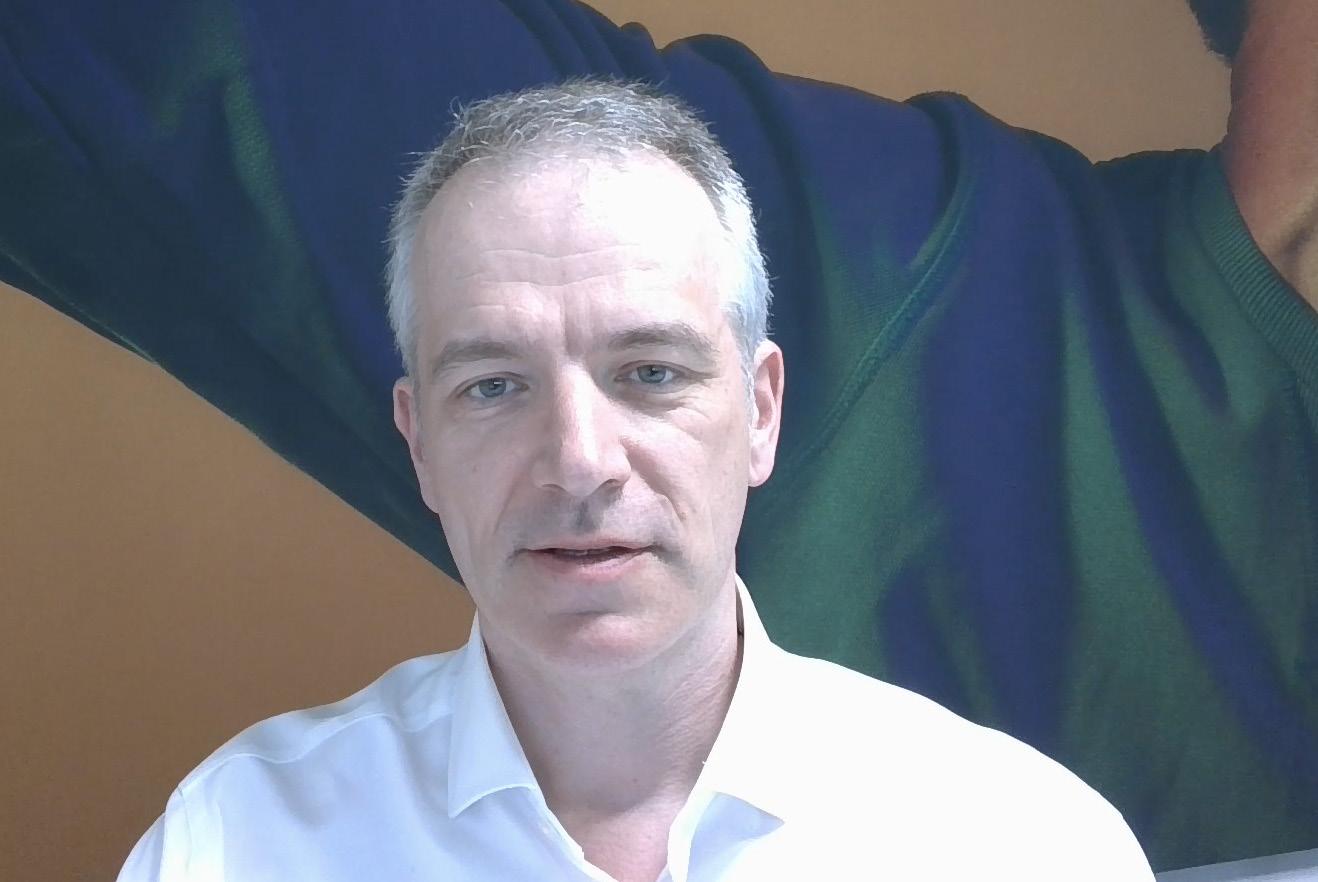
Human activities are threatening whales and dolphins. With your help, we can tackle the pollution, noise and other dangerous issues that are harming them and create protected areas so they can thrive
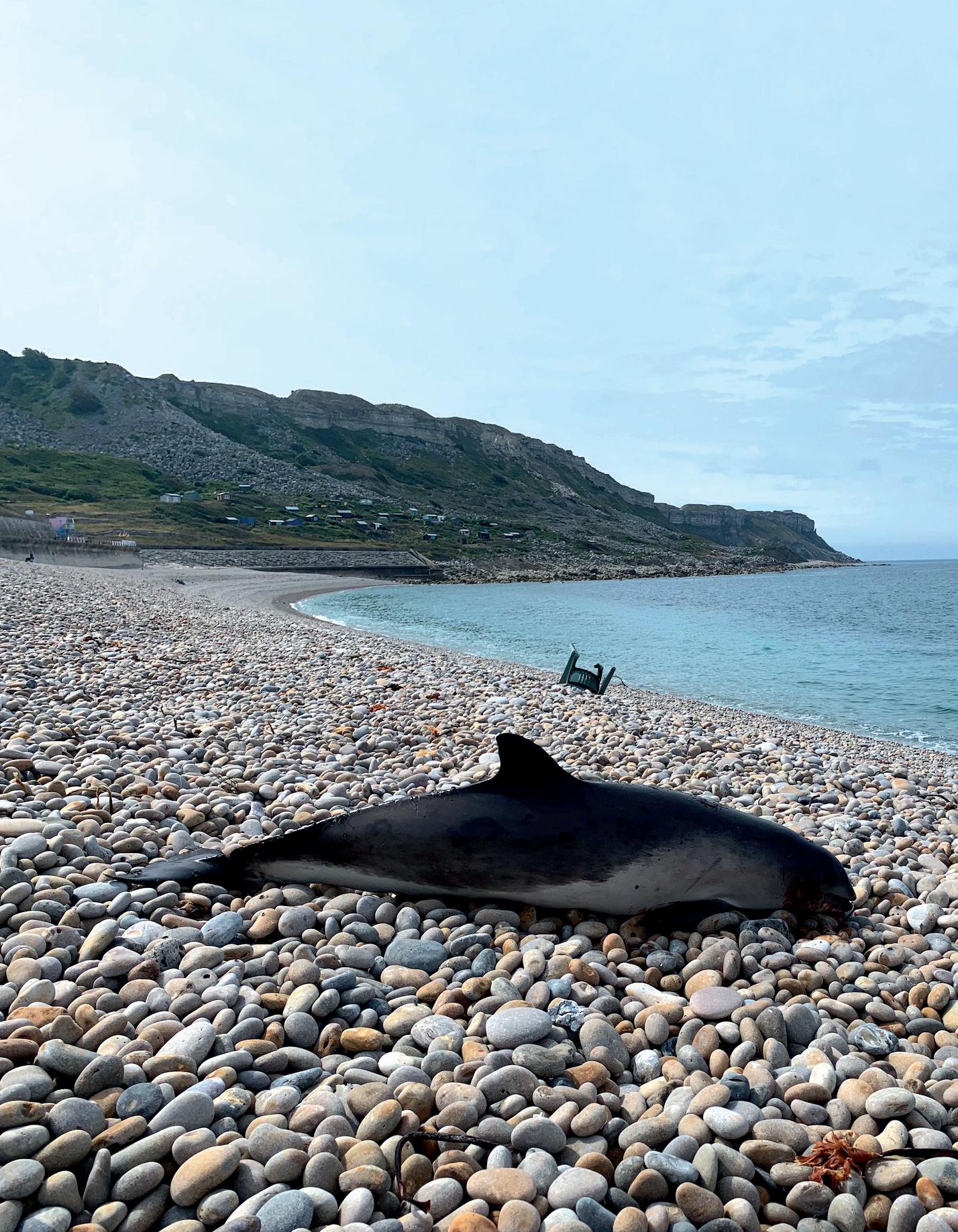
Every year, we accidentally trap, injure and kill hundreds of thousands of whales and dolphins in fishing nets and rope. Known as bycatch, this is the biggest cause of harm and death to whales and dolphins today. When tangled up in a net, rope or fishing line it can be a race against time to escape.
1. Whales and dolphins suffocate when caught in nets or tangled in gear
2. Whales and dolphins suffer terrible injuries – tearing muscles, breaking teeth, and sheering off fins
3. Whales and dolphins can break free but swim for months in pain with gear wrapped around their bodies
With your support we can
• Lobby gover nments for strong laws to reduce the threats to whales and dolphins
• Work with scientists and fishermen to find new ways and new technologies that are safer for whales and dolphins
• Campaign to give those species being driven to extinction by current fishing practices a fighting chance of survival
Supporters like you raised more than £16,000 as part of our Goodbye Bycatch appeal
A massive 70% of the Earth’s surface is water, yet just over 5% of the ocean is protected from damaging human activities. Whales help in our fight against climate breakdown so we need to create safe places where their populations can thrive.
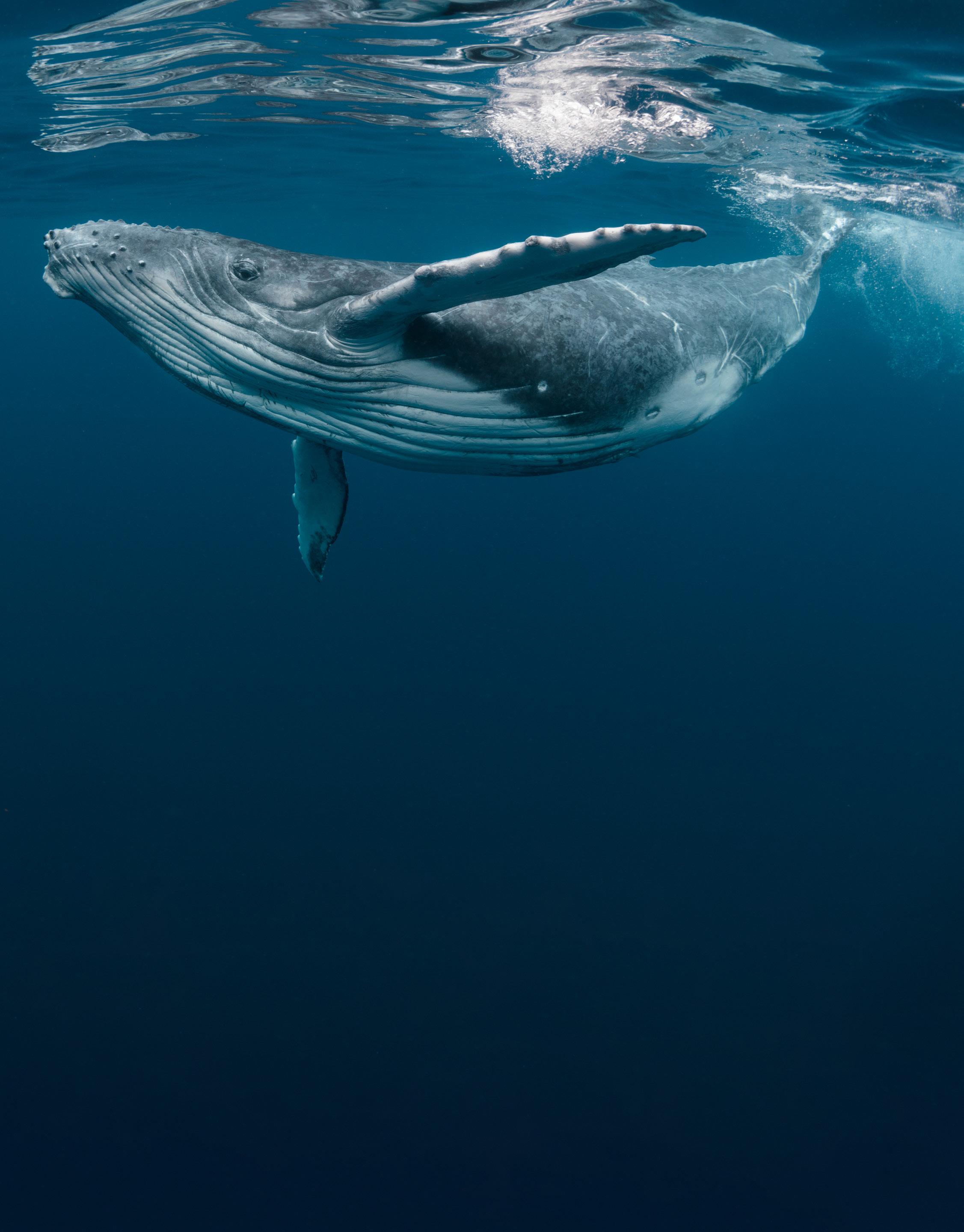
1. Whale and dolphin populations will struggle to grow without safe areas for them to breed in
2. Whale and dolphin populations will be affected without safe areas where their prey can be found
3. Whale and dolphin populations will not thrive if the areas they call home are disturbed by human activity
With your support we can
• Continue with our scientific work to help identify important protected areas around the world
• Pressure governments using international agreements to create more protected areas
• Represent whales and dolphins at national and international meetings on protected areas
• Use protected areas to help increase population growth and chances of survival for whales and dolphins
Oil, sewage, litter, chemicals and plastics are all examples of marine pollution that contaminant the ocean. Loud underwater noise pollution is also a threat. They all have a long-term impact on whales, dolphins and the wider marine environment.
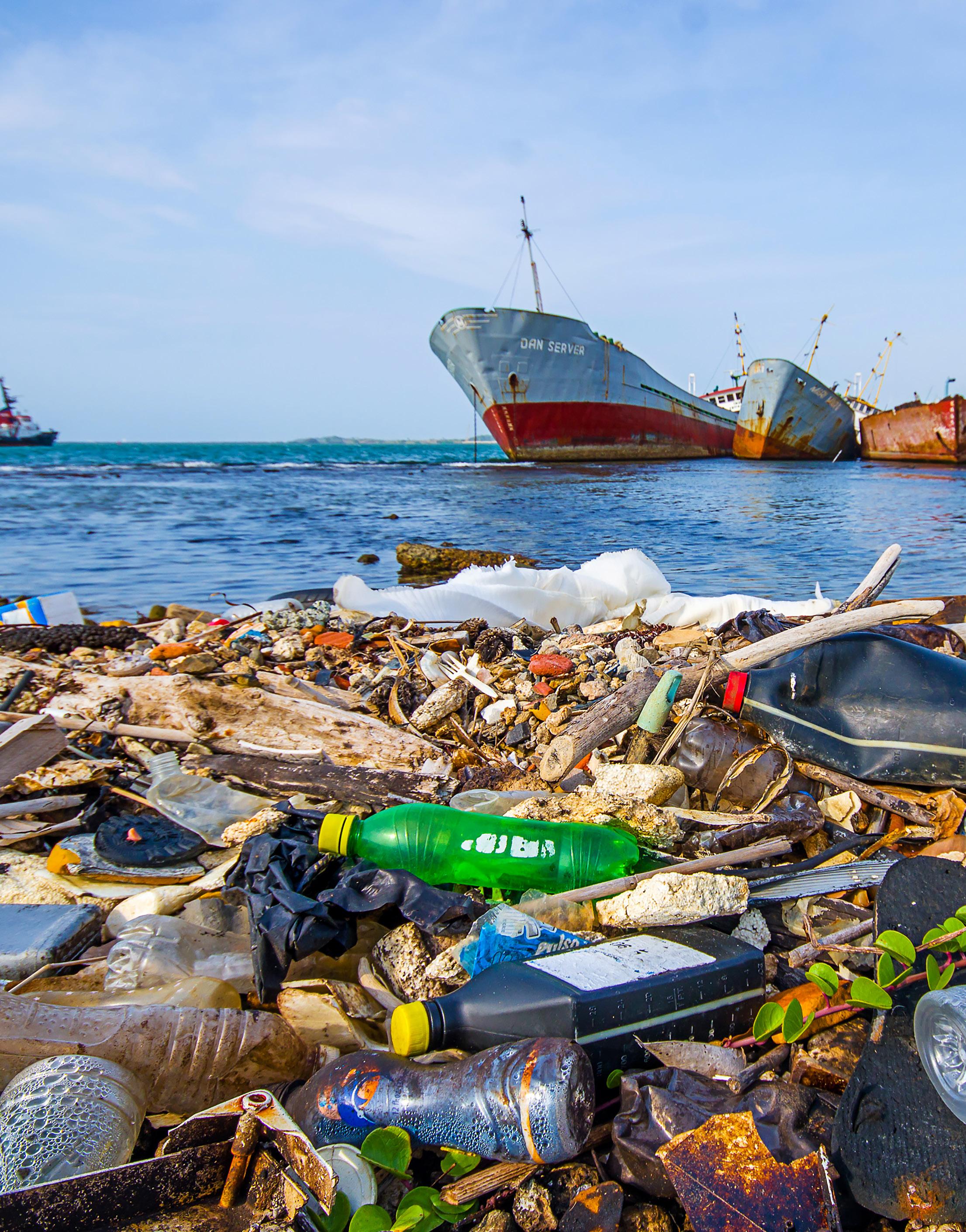
1. Some chemicals that have been allowed to leak into the sea are absorbed by whales and dolphins. They prevent them from giving birth and some populations are set to die out completely within a generation as a result
2. Whales and dolphins can mistake plastic dumped in the ocean for food and this can then affect their digestive system. They can also become entangled in discarded plastic waste and absorb tiny micro plastic pieces, causing contamination
3. Loud underwater noise caused by drilling for oil and gas, military exercises or increased boat traffic can push whales and dolphins away from the places they call home, where they feed, breed and play, and can cause them to become stranded on beaches
With your support we can
• Continue to pressure UK and other governments to create laws reducing plastic use and waste, and to eliminate single-use plastics
• Continue to work with industries to make them aware of the issues affecting whales and dolphins, and reduce production of single-use plastics
• Pressure organisations and governments to use methods that reduce the amount of noise pollution in the ocean or carry out some activities in areas where impacts on whales and dolphins are reduced
Large passing ships are unlikely to see a whale or may be unable to divert course if they do. But many species of whale rest, feed, play, migrate through and give birth in busy marine highways, putting them at risk of being struck by passing vessels. In the case of endangered North Atlantic right whales, collision with shipping is one of the two biggest threats to their survival.
1. Whales can be killed or suffer horrendous injuries when hit by a vessel
2. Ships that collide with whales also suffer damage and crew or passengers could be hurt
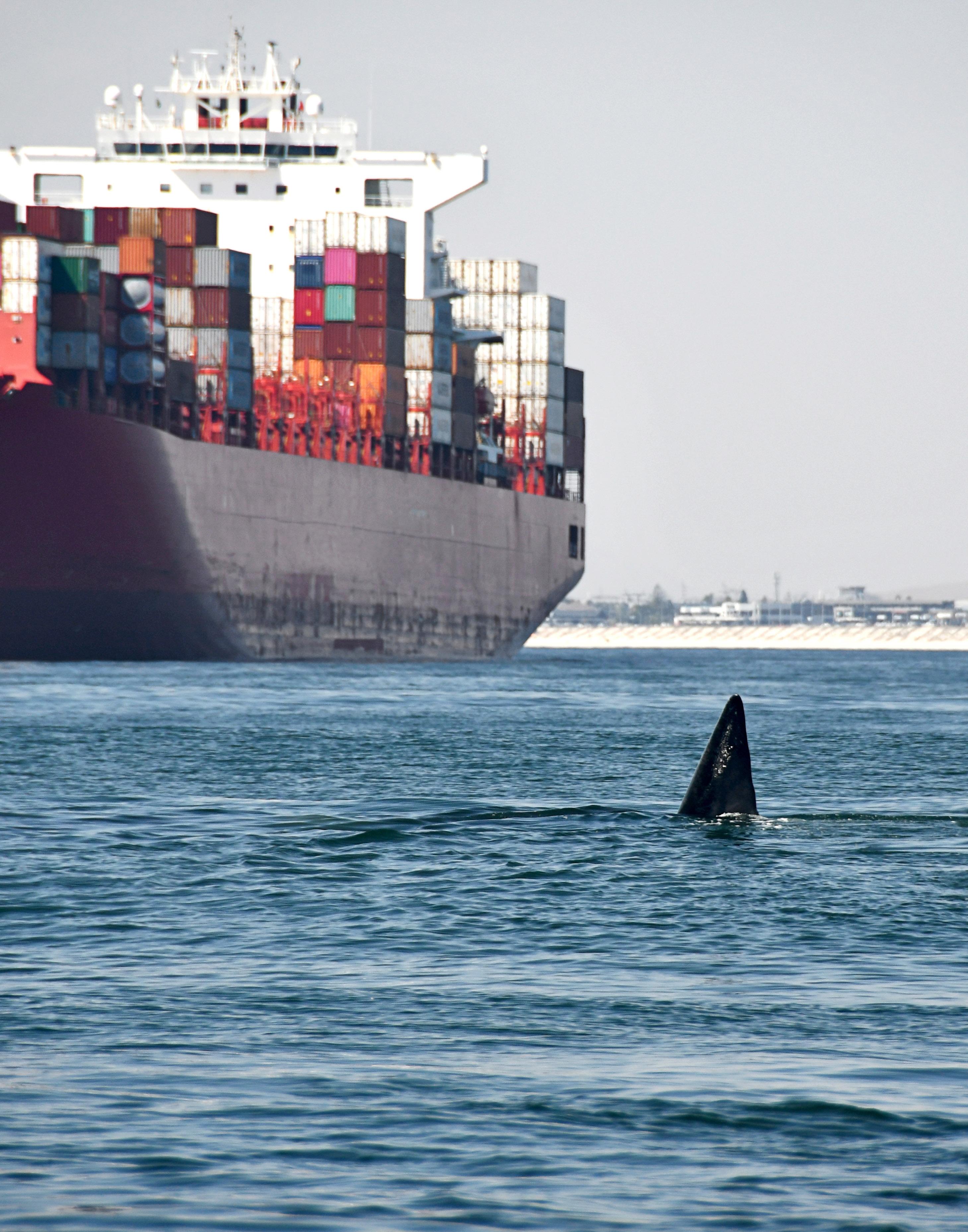
With your support we can
• Work with governments to implement rules for shipping to reduce threats to whales
• Continue work to encourage shipping routes to be altered
• Continue to push for areas where boats have to keep their distance from whales
• Continue our campaign work to have speed limits introduced. In some areas such as those in the US visited by endangered North Atlantic right whales, this can reduce deaths by up to 90%
• Continue with programmes to inform boaters about safety when moving through whale habitats
Humans inflict terrible cruelty on whales and dolphins. We need to put an end to pointless practices such as captivity for entertainment and whaling
Whales and dolphins should be free to swim many miles every day as they do in the wild. But there are more than 3,000 whales and dolphins held captive in aquariums and zoos around the world.
Key facts
1. Whales and dolphins live shorter lives in captivity
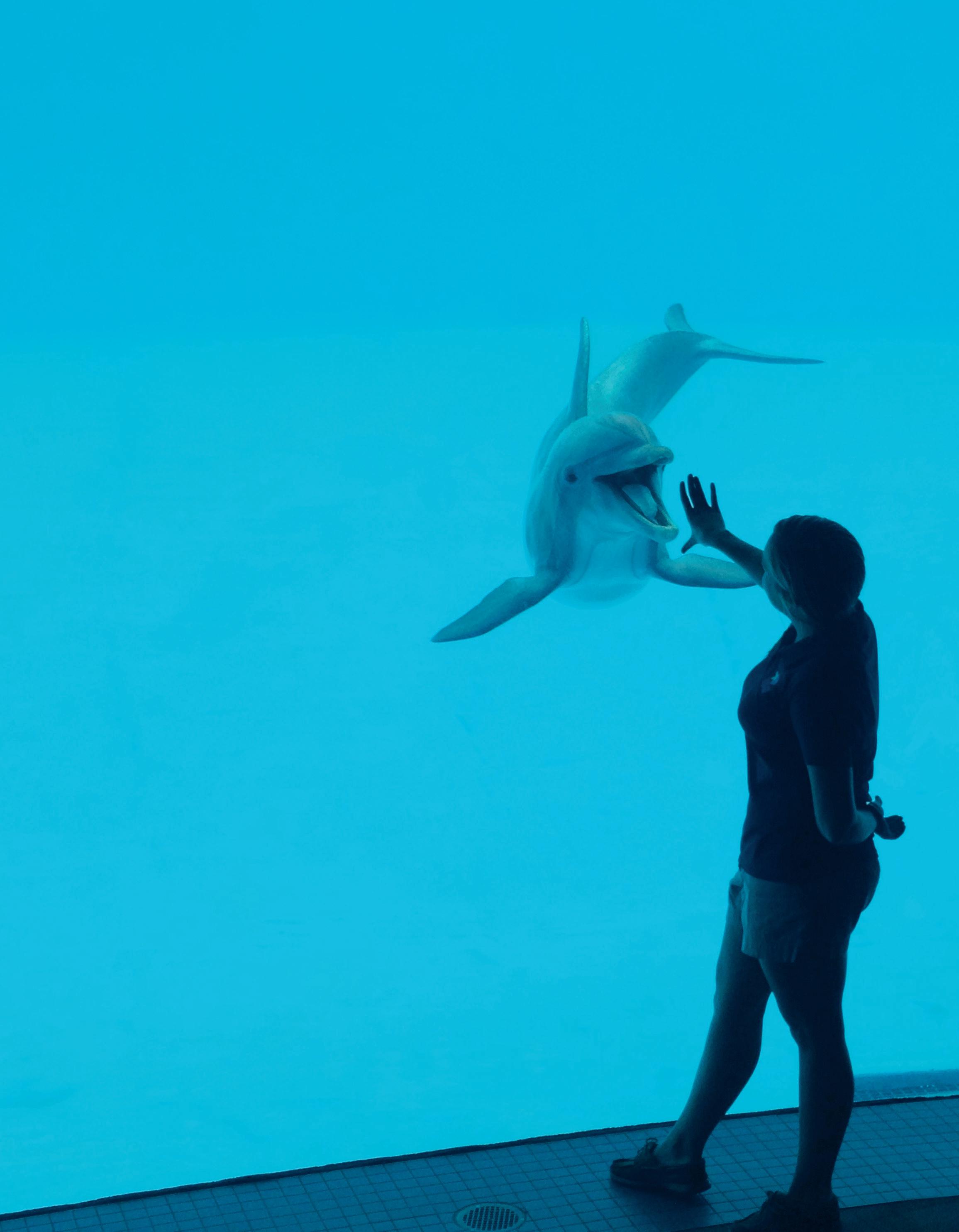
2. They swim in circles endlessly if held captive
3. They chew on the sides of the pool and repeat the same patterns of behaviour over and over
4.They also suffer from stress
With your support we can
• Put pressure on governments to ban the capture of wild whales and dolphins
• Make tourists and tour operators aware of the cruelty they’re encouraging when they visit or promote marine parks
• Create sanctuaries that provide alternative, more natural homes for captive whales and dolphins, where they can enjoy improved health and welfare, and be prepared for release into the wild
Whaling for profit was banned in 1986. But Japan, Iceland and Norway continue to hunt, and have killed nearly 40,000 large whales since then. More than 100,000 dolphins, small whales and porpoises are also killed in various countries each year. It’s cruel and pointless.
1. Whales are shot with grenade-tipped harpoons
2. Harpoons are often fired inaccurately from moving ships
3. Whales have been shown to take up to two hours to die after being shot
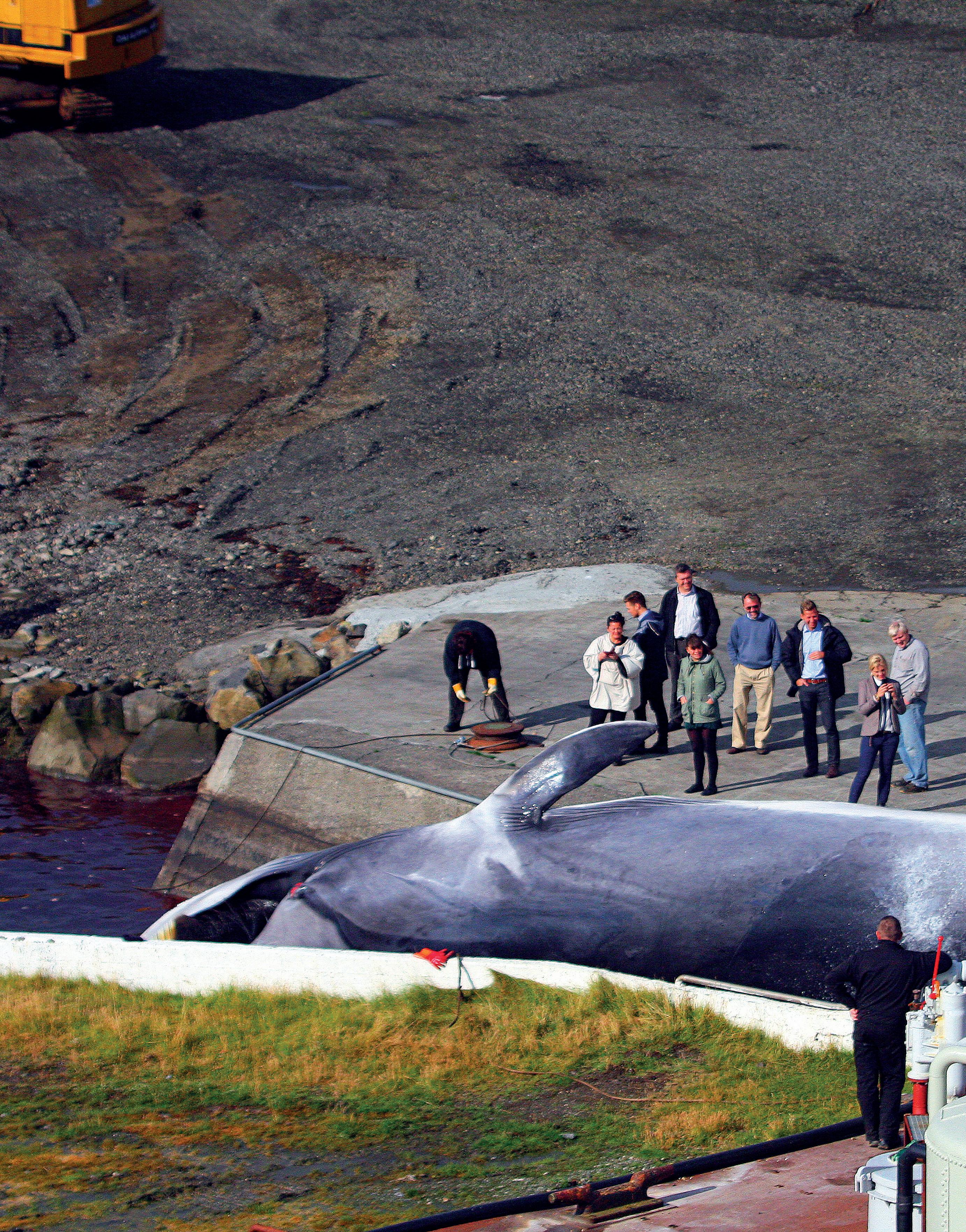
4. There’s little demand for whale meat; much of it is kept in frozen stockpiles
With your support we can
• Expose the suffering and bring an end to brutal dolphin hunts
• Fight for the rights of whales by being present wherever governments make decisions about the future of whaling
• Reduce demand for whale meat by making tourists aware of the cruel slaughter before they buy whale meat while on holiday
• Work with local communities to encourage whale watching as a sustainable alternative to whale hunting
More than 100,000 dolphins and small whales are killed in brutal hunts across the globe. The hunts in Japan and the Faroe Islands are infamous but others in West Africa, Latin America, the Caribbean, the South Pacific and Asia happen every day.
1. Some hunts use fleets of small boats in a chase to push stressed dolphins to the shore
2. Blunt hooks are used by some hunters to drag dolphins and whales out of the water
3. Knives and lances are used to kill whales and dolphins
4.Often death is prolonged and agonising
5. Those who escape can suffer long-term physical injuries and stress
6. The meat can contain high levels of contaminants and so isn’t safe to eat
With your support we can
• Commission undercover investigations and surveillance in Taiji, Japan, where the most infamous of these hunts takes place
• Work with local organisations and educate the public – many Japanese people have no idea hunts happen
• Stop businesses contributing to the slaughter, such as airlines that carry live dolphins captured in the hunts
• Influence legislators and decision makers to tighten laws to protect dolphins and save them from suffering.Thanks to our efforts, international fora, such as the UN’s Convention on Migratory Species, are asking countries to address the unsustainable consumption of meat from dolphins and small whales
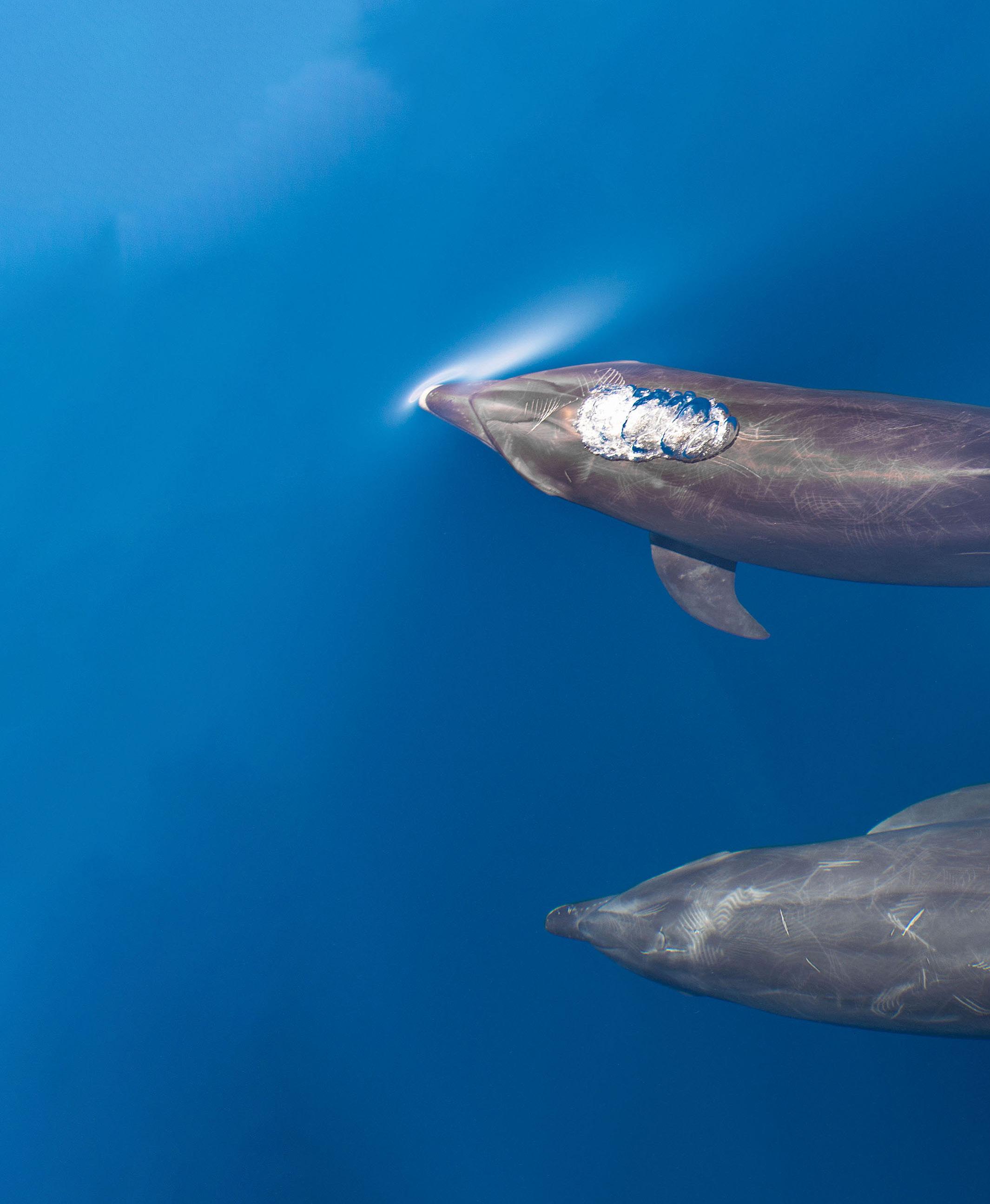
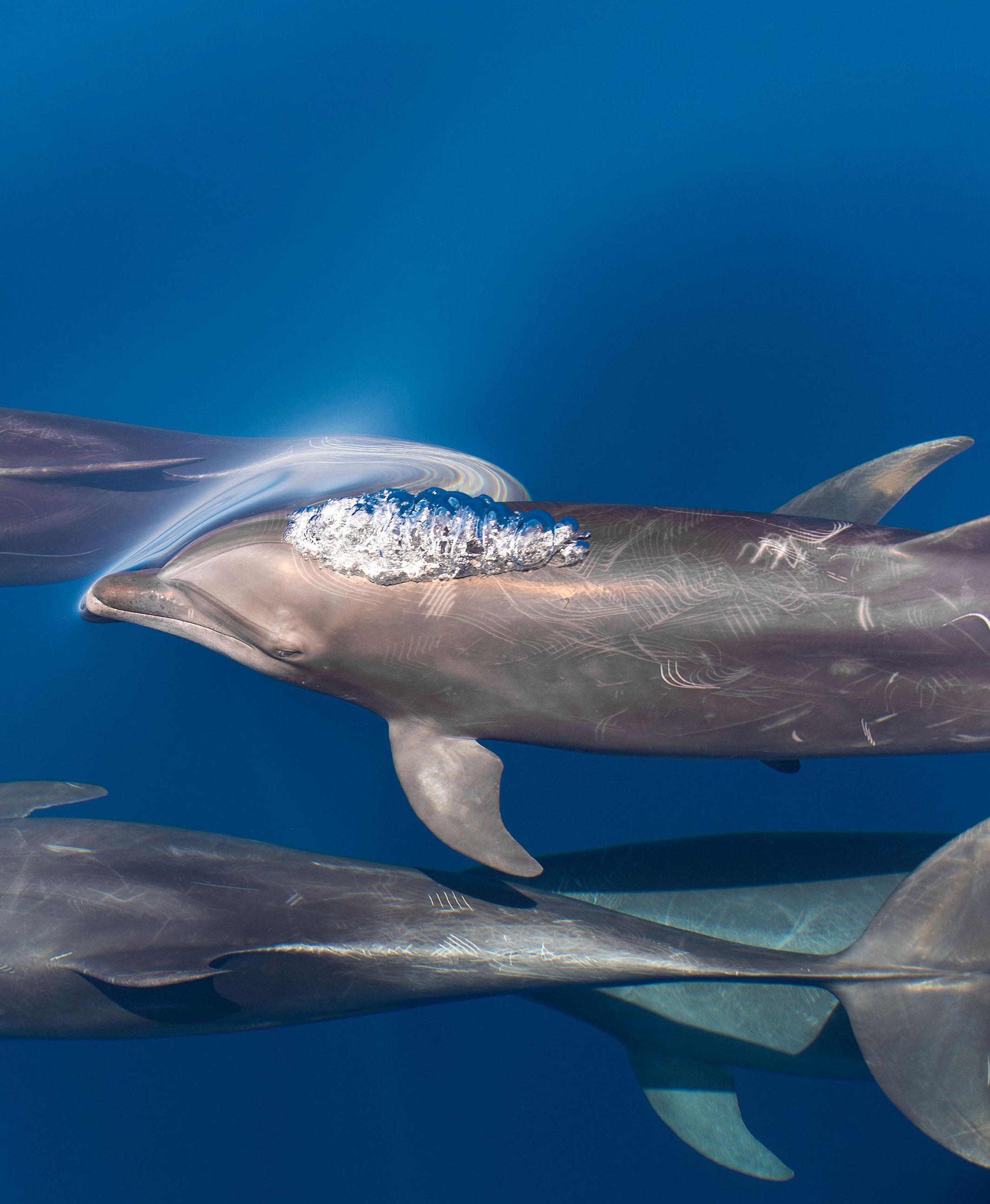
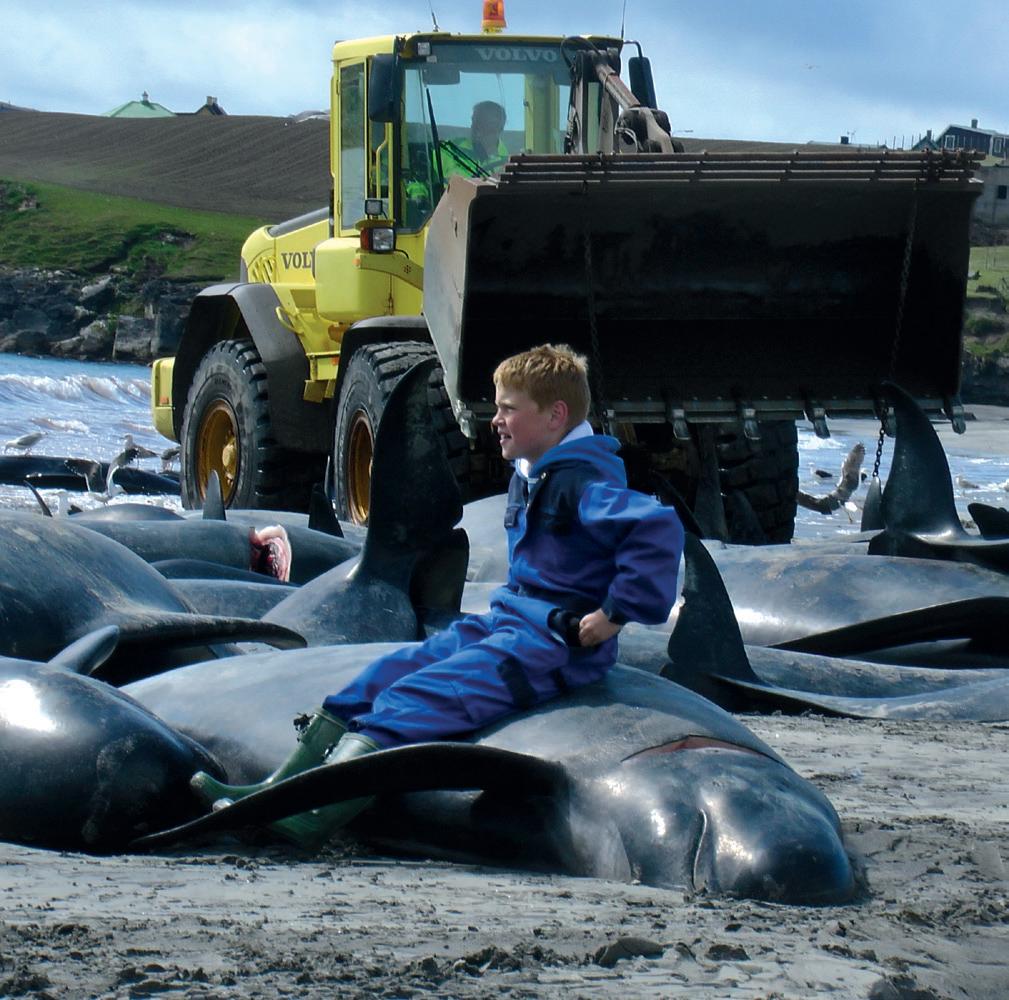
Whales help to sustain an ocean that captures as much carbon as all the rainforests on Earth.
As they go about their long lives, these ‘climate giants’ circulate nutrients throughout the ocean. Those nutrients are essential for the whole marine ecosystem, including phytoplankton: microscopic plant-like organisms that absorb nearly a third of human-made carbon dioxide. Phytoplankton also provide oxygen, which sustains most of the rest of ocean life.
Even when their lives are over, whales have a vital role to play in ocean health and
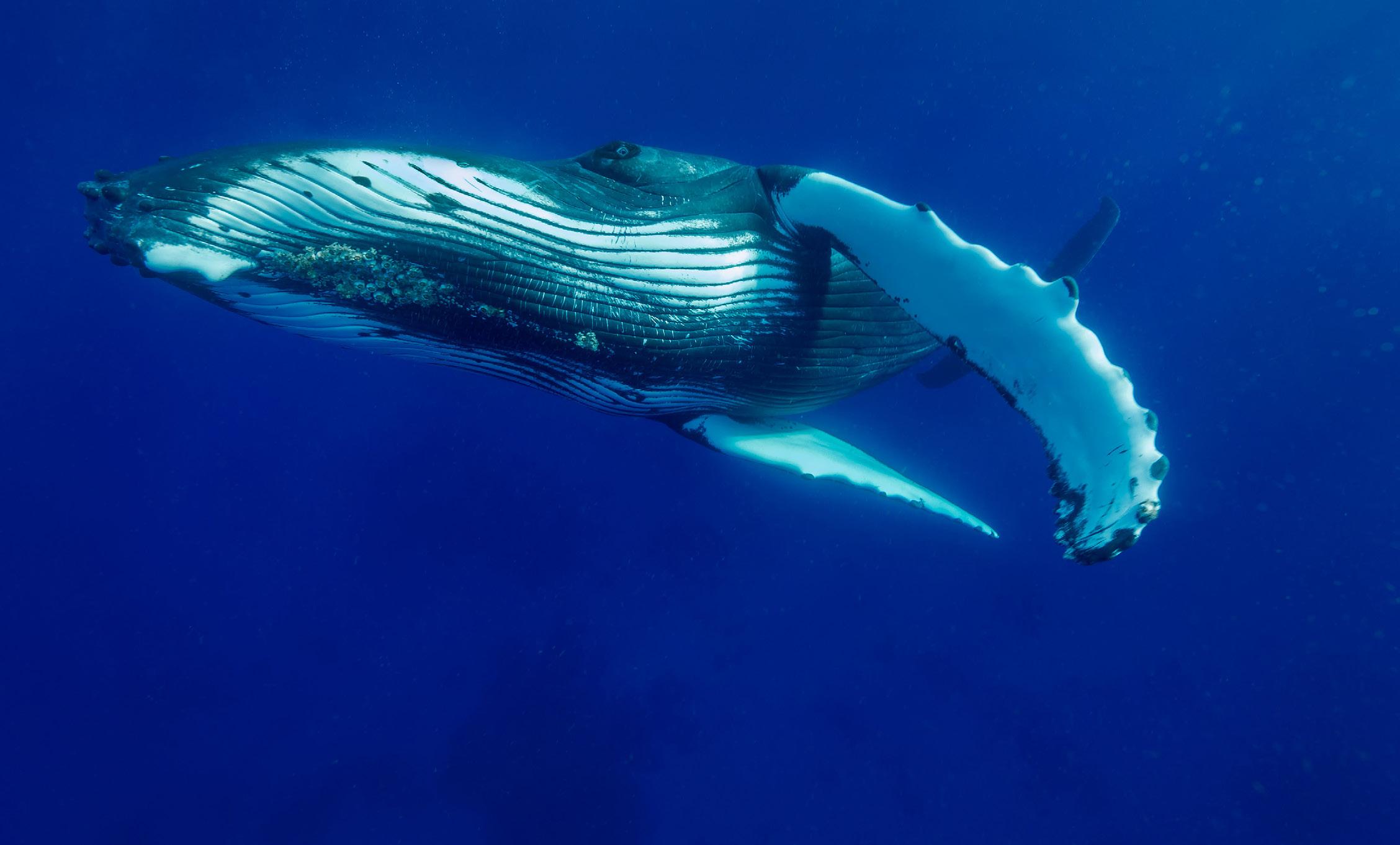
fighting climate breakdown. As we show on the opposite page, when whales die, their bodies fall to the sea floor. Through these ‘whale falls’, the huge amounts of carbon in their bodies are locked away in deep ocean sediments for hundreds, potentially thousands, of years.
One case study in the Greater Farallones National Marine Sanctuary off the coast of California showed that whale falls account for roughly 60% of annual carbon sequestration (taking carbon out of the atmosphere and locking it away) – more than all the salt marsh, seagrass and kelp combined in the sanctuary.
One of the biggest challenges in whale and dolphin conservation is knowing how many whales and dolphins there are, and where they live.
We’re making good progress on a project to map Important Marine Mammal Areas in coastal seas around the world but replicating this on the high seas has has been difficult.
Just over a year ago, we put out a call for solutions through Deloitte’s Gravity Challenge, which invites satellite and GIS specialists to solve real-life problems. We were delighted to select the brilliantly named Space Whale, who has developed amazing and proven technology to spot and identify whale species using satellite imagery.
The next step is to scale this project up and get it underway. We’re currently exploring funding partnerships to do just that.
It’s a project that could be transformational for whale and dolphin conservation, and for the ocean.
‘If baleen whale numbers recovered to their pre-whaling figures, they could store more carbon in their bodies than 950 million trees’
Even after they pass away, whales are helping us
1 When a whale dies, his or her body sinks to the ocean floor.
2. The whale carcasses store carbon for thousands of years. This process prevents the carbon from being released back into the atmosphere, helping to combat climate change.
3. Whale carcasses also provide a unique ecosystem for up to 200 species in the form of both food and habitat.
We’re proud and grateful to have the best supporters in the world. Whether you give quietly by Direct Debit, take on a challenge,
sign a petition, share our posts, play our raffle, buy from our shop or send a donation when you can. Every single success
in these pages is yours. You’re awesome, you inspire us and we thank you. Here are a few success stories from 2022.
Helen and Angela laced up their walking boots for the 100-kilometre London 2 Brighton Ultra Challenge. Helen said, ‘I’ll never forget the experience of walking in the countryside at dawn and hearing the most fantastic dawn chorus as the light grew.’ All their hard work resulted in an amazing £646 for whales and dolphins.
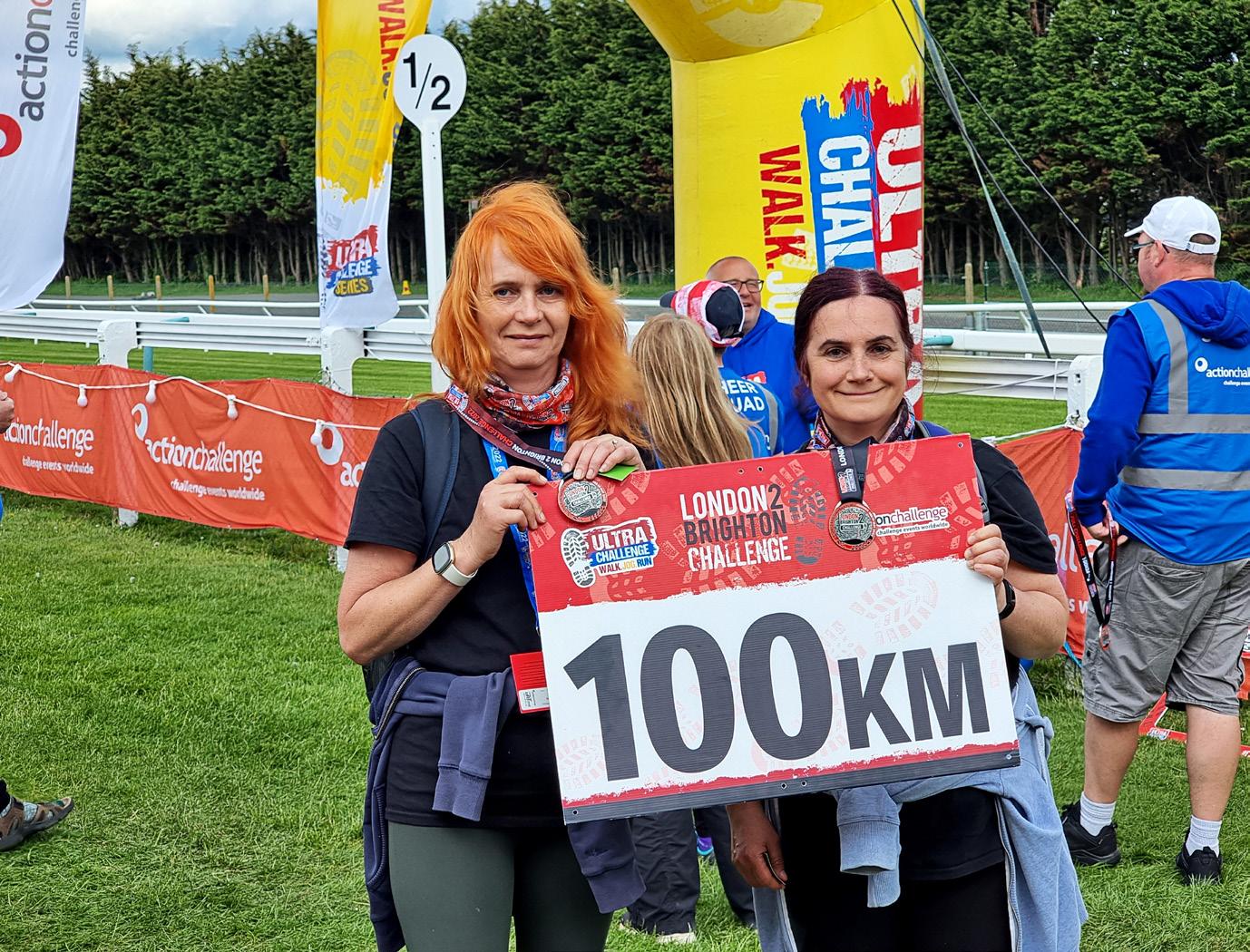
Retired firefighter and dolphin fan Colin navigated a six-week solo sea kayak challenge. He clocked up 800 miles, paddling from Plymouth to Inverness. Highlights were seeing Risso’s and bottlenose dolphins as well as a minke whale while raising £1,883 to protect them.
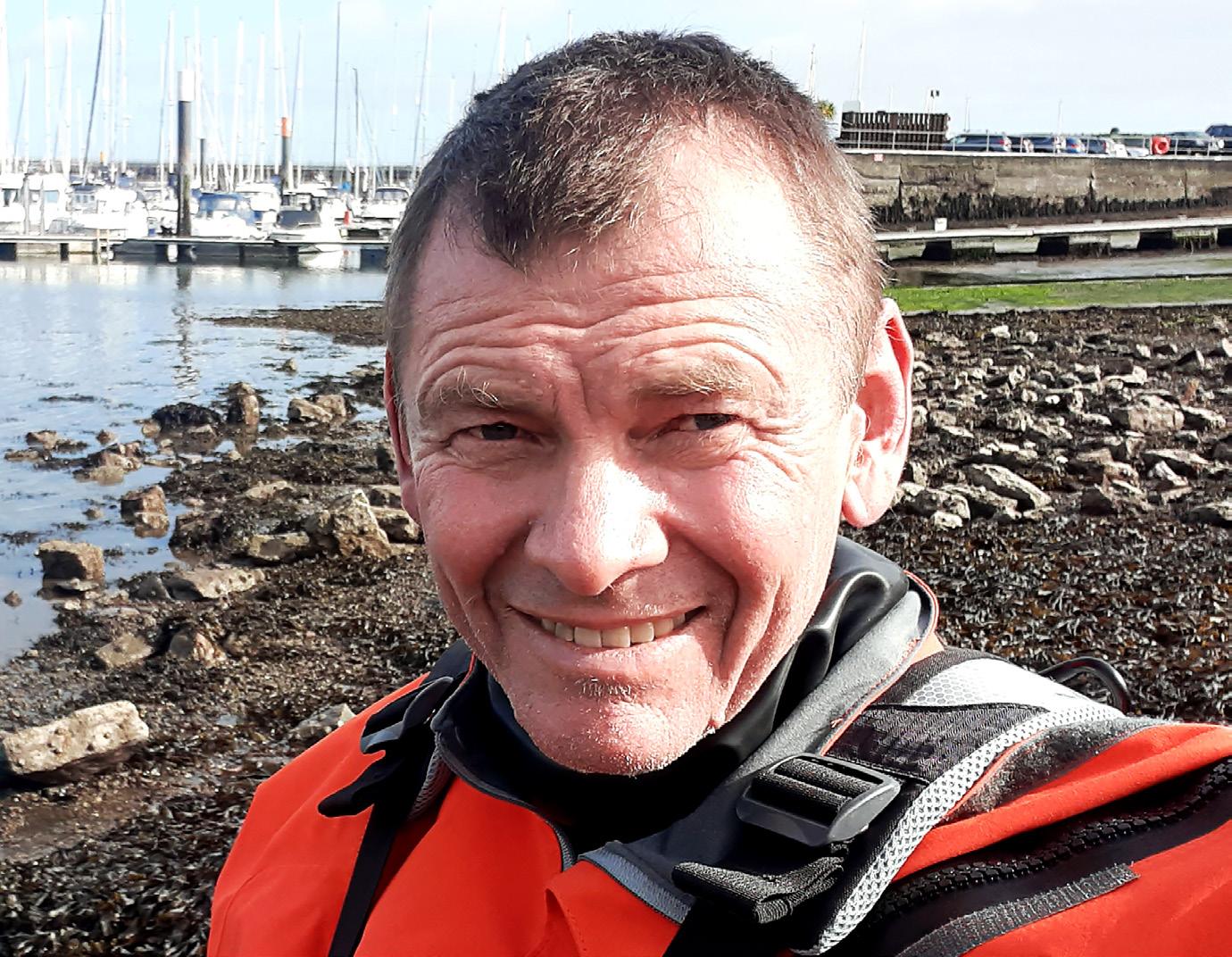 Marie walked her way to £3,452 for whales
Marie walked her way to £3,452 for whales
Rebecca and the team at Worthing Coastal Office have collected more than 500 old phones for recycling, with their most recent donation of £45.50 bringing their total amount raised for whales and dolphins to more than £115.
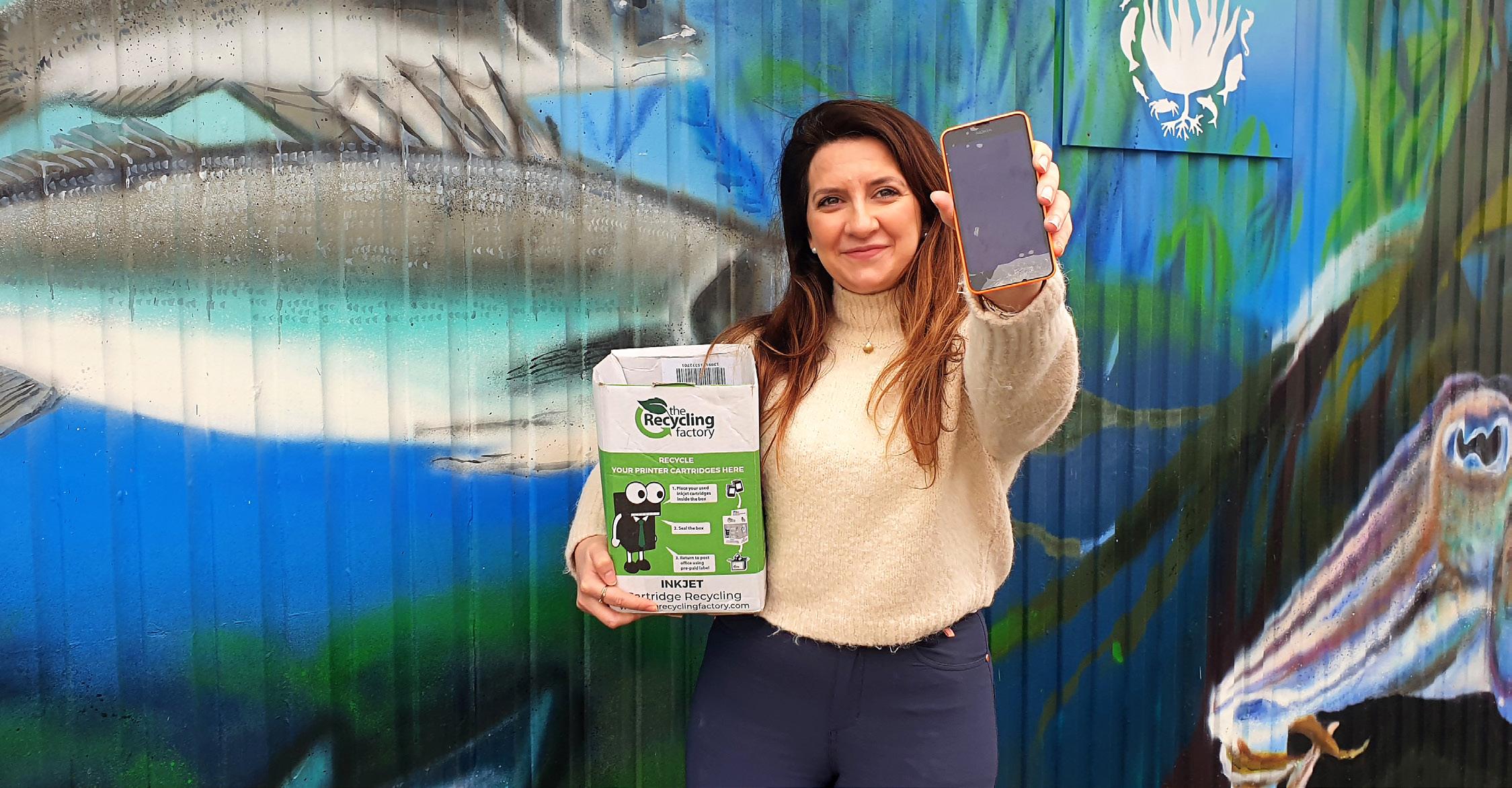
Melanie is disgusted by the amount of plastic rubbish she finds on beaches and has been carrying out weekly beach cleans along the Jurassic Coast. She uses the litter she collects to create ornaments and sells them in a local arts and crafts shop. So far Melanie’s ornaments have raised a not-so-rubbish £260.
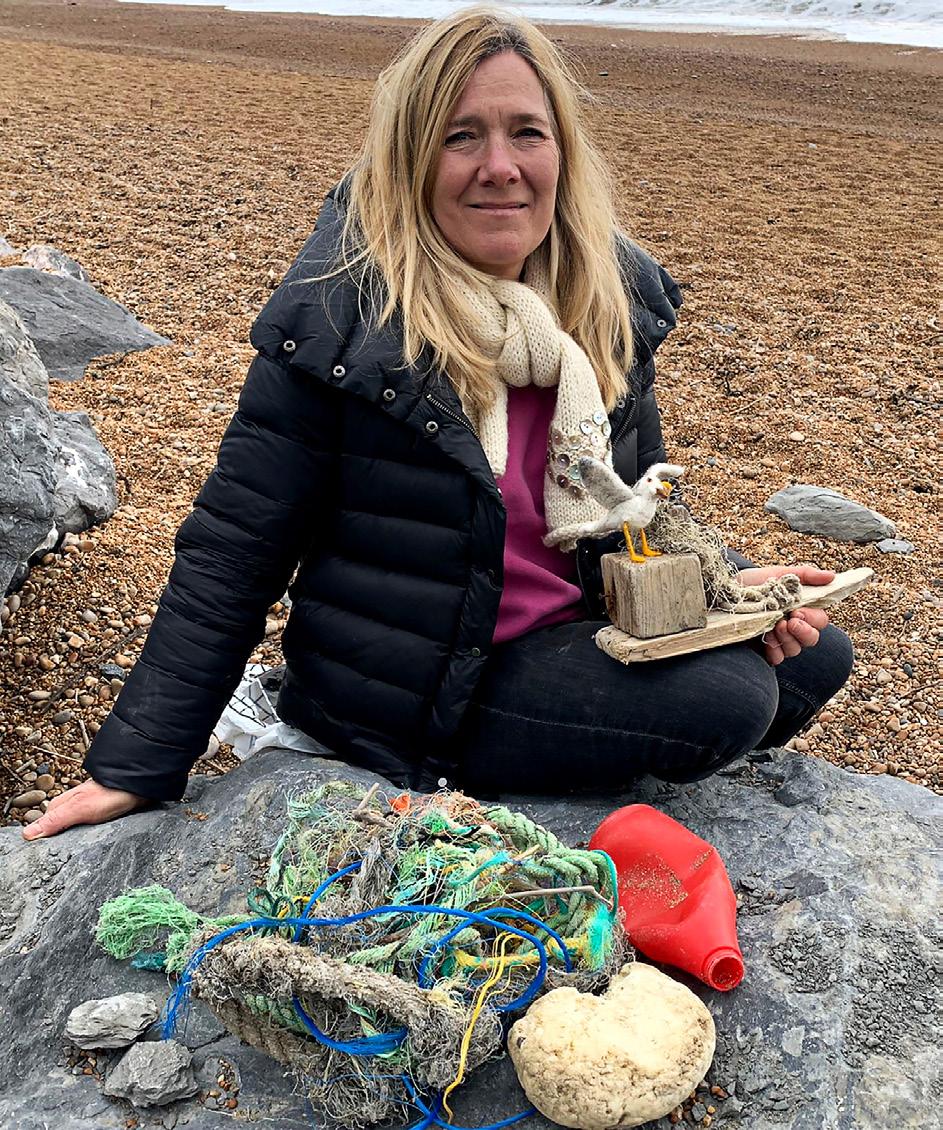
Starting in idyllic Bakewell, Russ took on the Peak District Ultra Challenge, walking 50 kilometres. He raised a fantastic £1,000.
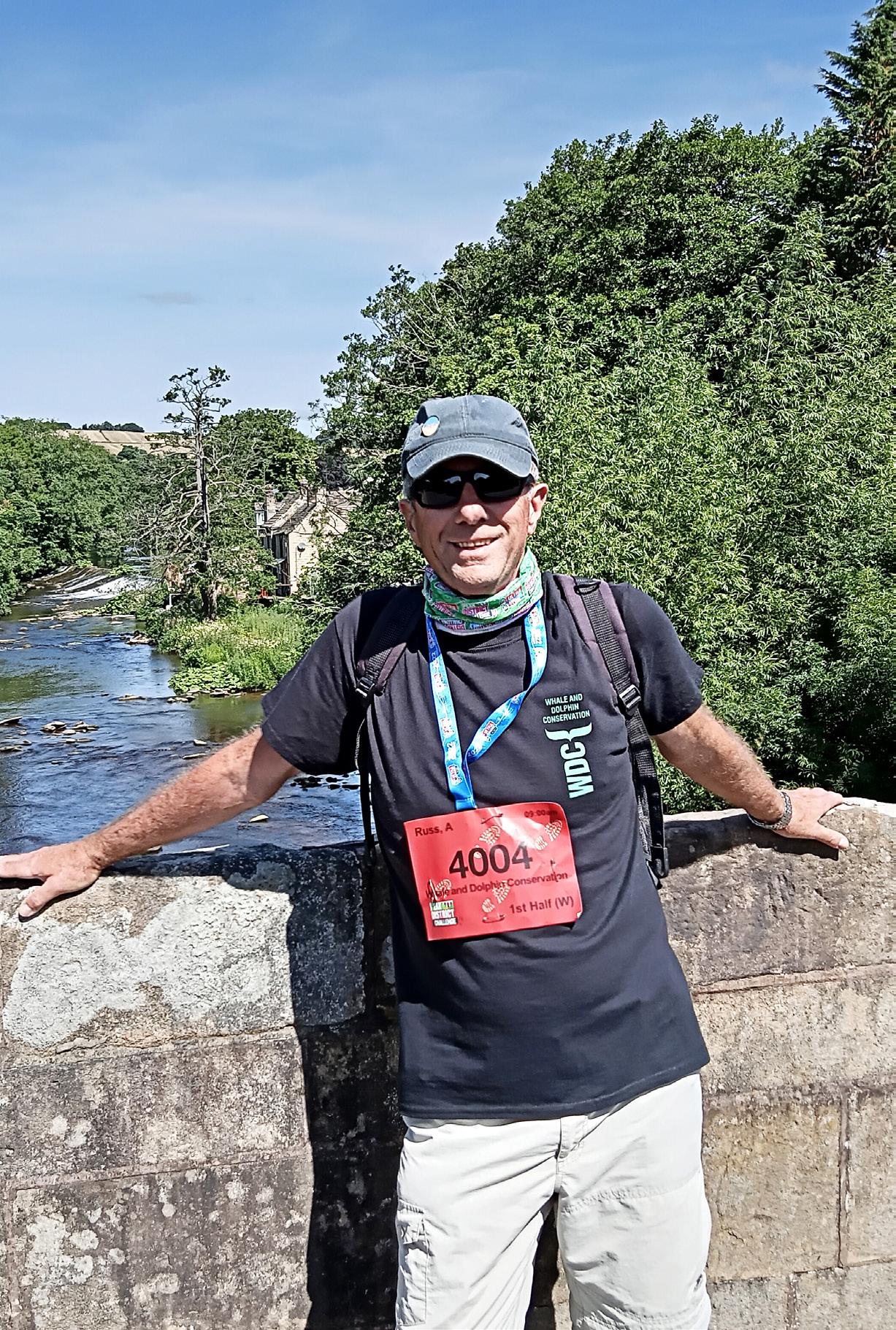
For the year ended 30 September 2022, we’re reporting a profit of £18,973. This was smaller than budgeted due to the delay in investing in a new CRM system.
There was a decrease in income of £208,325 to £4,803,933 (2021: increase of £348,551). The main decrease was from legacies, which dropped by £613,696.
There was an increase in most other areas compared with the previous year. Trading income increased by 34% and income from donations by 8%. However, membership and adoption income decreased slightly by 3%.
Regular giving continues to be our main source of income but income from partnerships has stabilised at around 20% of total donations excluding legacies. Trust income has also increased as expected as we continue our theory of change approach and are able to demonstrate our impact more fully to philanthropists and grant makers.
Charitable expenditure in the year amounted to £3,696,261 (2021: £3,464,186).
Expenditure on our policy work increased by 10%. Income from trusts and grants supported this work.
The cost of raising funds has increased by 19% from £910,037 to £1,088,699 with investments being made in this area.
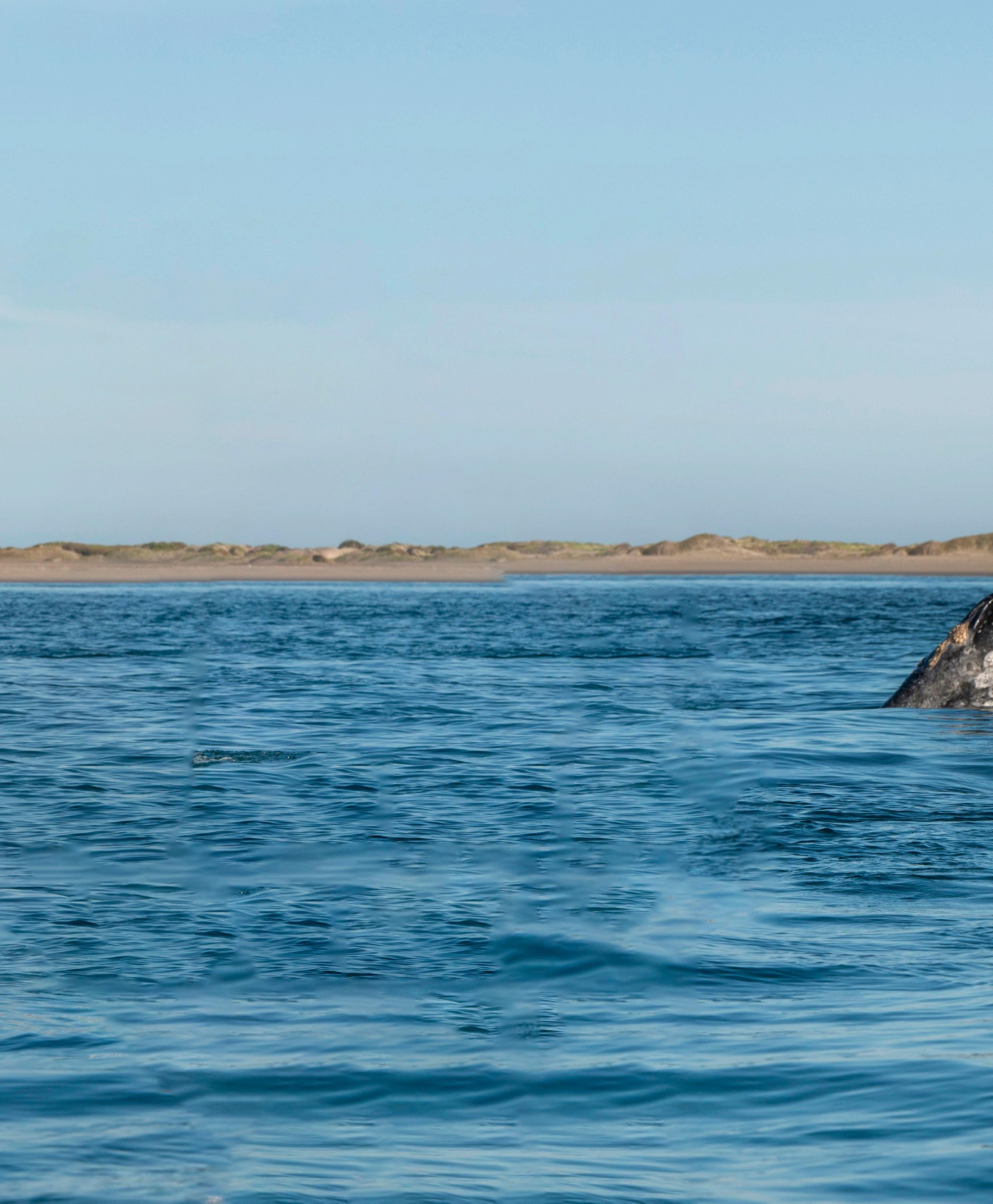
The US subsidiary is showing a small net loss of £44,785 in the year, which was budgeted for.
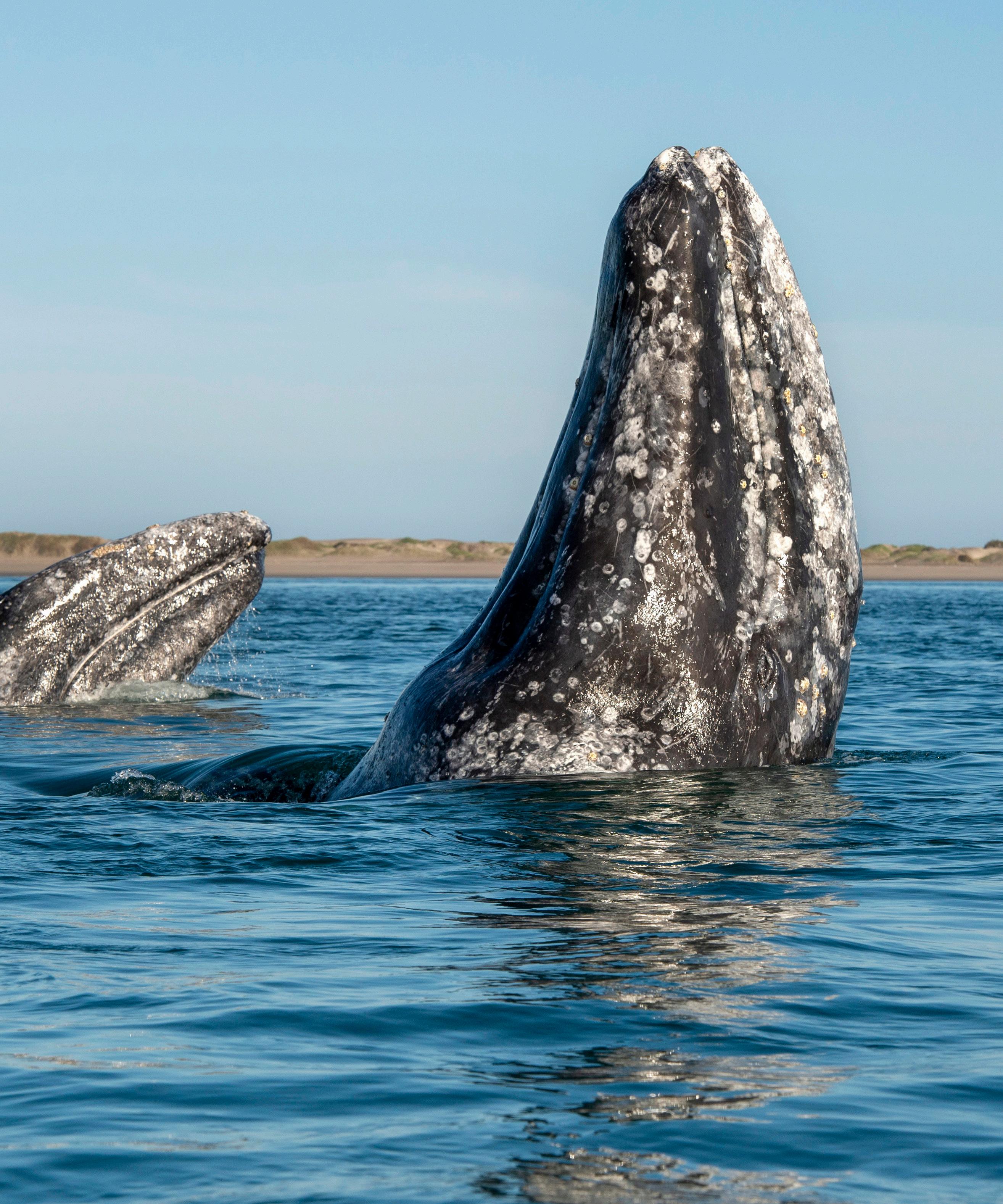
The German subsidiary had a net loss of £4,792 during this period. Following the receipt of a large legacy in 2021, the strategy is to spend this on policy work over the next three years.
The trading company had a more successful year, returning to full opening following two difficult years, which were impacted by Covid-19.
The trading company includes the running of the raffle and receives income from marketing using our logo, so we were pleased that net income in 2022 was £67,085. The trustees
regularly review the activities of the trading company. They consider that it’s useful to the charity as it allows important activities to be undertaken, which benefit the charitable objectives but may not normally be able to be undertaken by a charity. This is especially true as we expand our corporate activities, some of which can most effectively be carried out via this company.
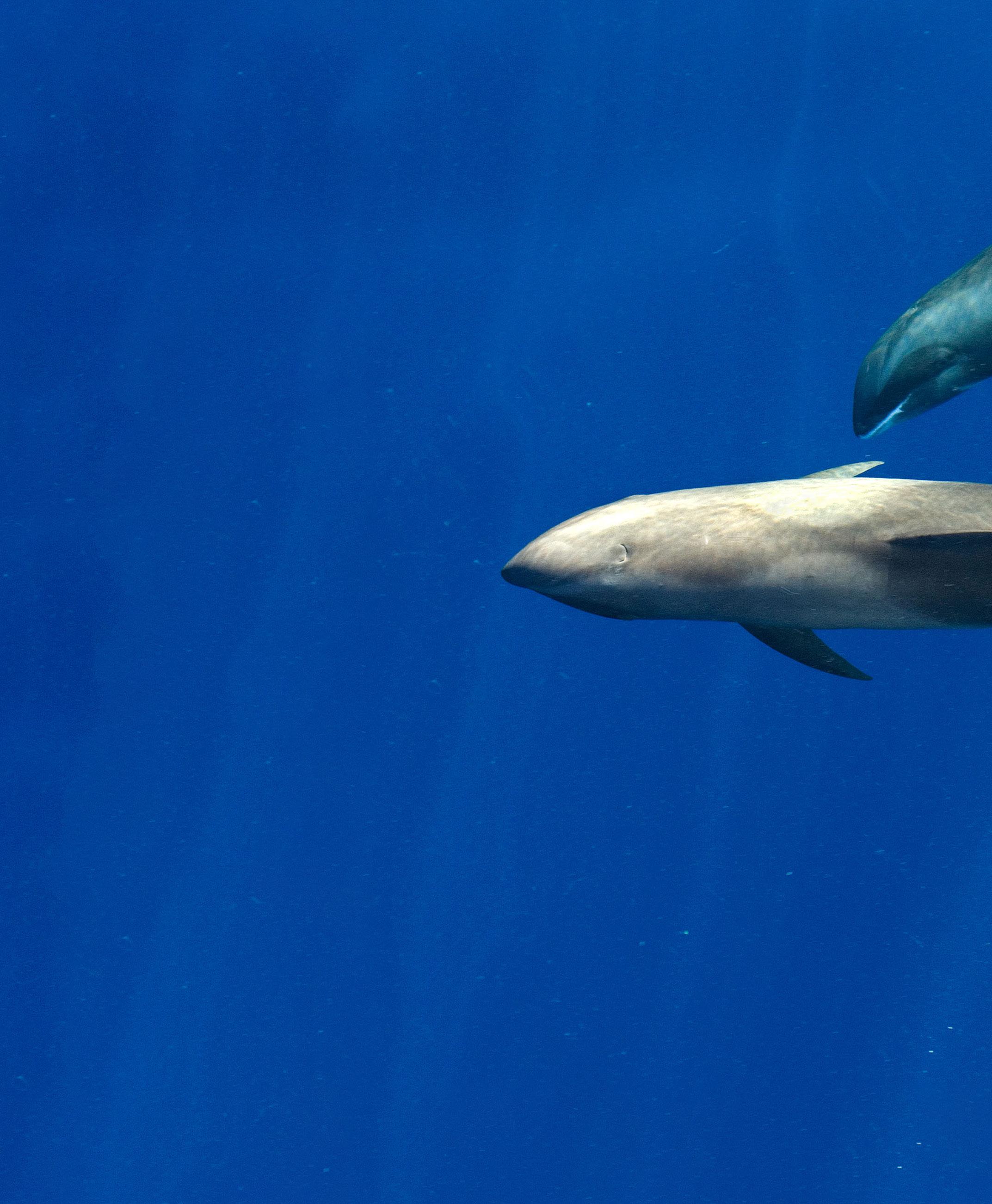
A team of 11 working in our North American office Executive director: Regina Asmutis-Silva
A team of eight working in our German office Executive director: Franziska Walter
Board of trustees: Lisa Drewe (chair), Alex Hunt, Arietta Bortot, Hannah McCarthy, Jessica Pollitt, John Gerard Leigh, Johnny Read, Phil Smith
Chief executive officer: Chris Butler-Stroud
Senior management: Cally Moore (director of finance)
Carla Boreham (director of policy and campaigns)
Chris Vick (director of strategic operations)
Ed Fox (director of marketing and communications)
Helen Mitchell (director of fundraising)
Audit comittee Investment committee Risk committee
Australian office (licensed entity)
Executive director: Declan Andrews
Sian Davies-Hamilton (director of human resources)
There are 57 members of staff in five directorates:
1.Campaigns and policy
2.Finance and support services
3.Fundraising
4.Marketing and communications
5.HR
Supported by
Donors, grants, legacies and corporate partners
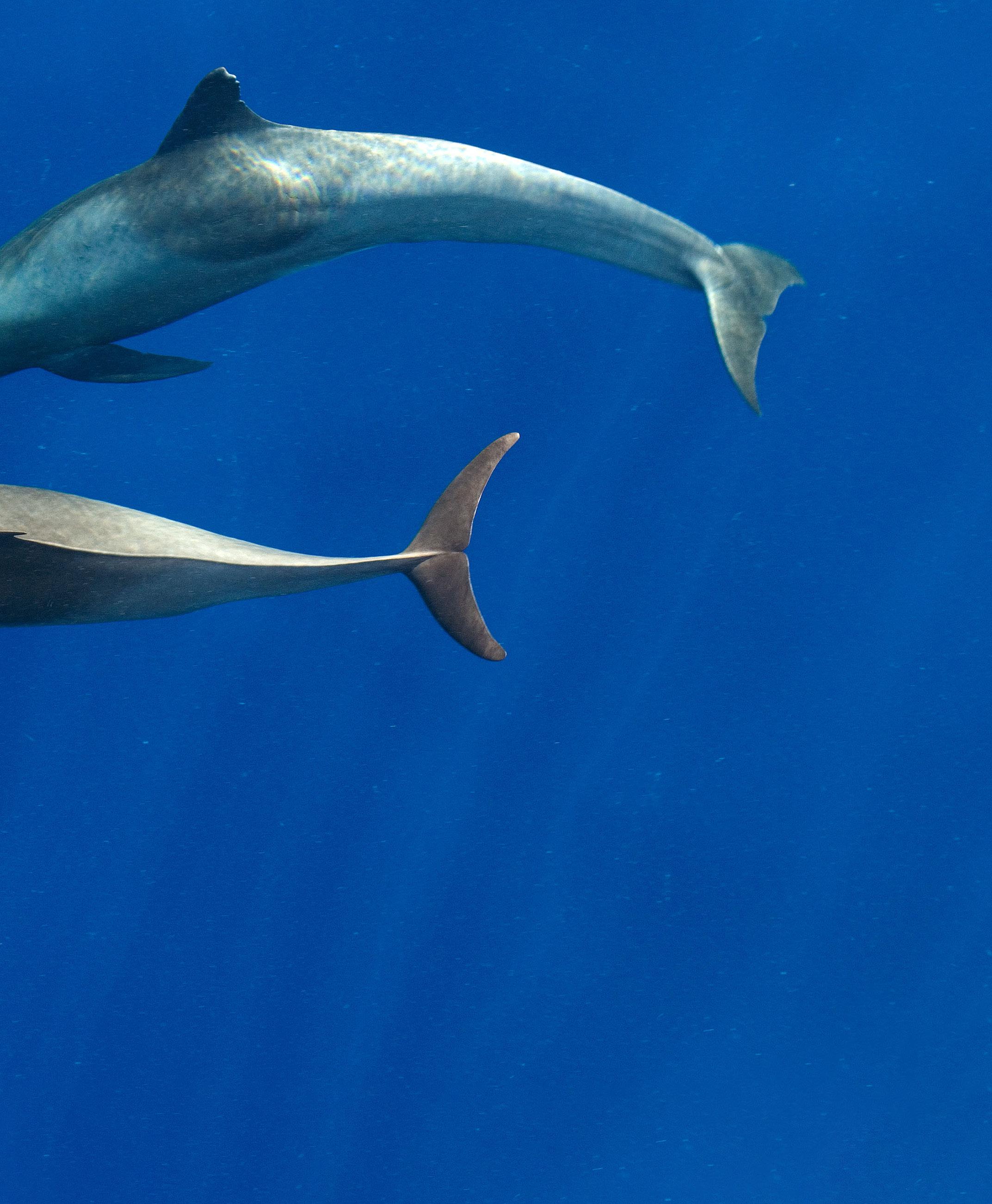
More than 30,000 individual donors globally
A network of ambassadors and patrons
(see page 38 and 39)
More than 400 registered volunteers
Just some of the high-profile supporters who give us their valuable time, support and expertise to help save whales and dolphins. Thank you!
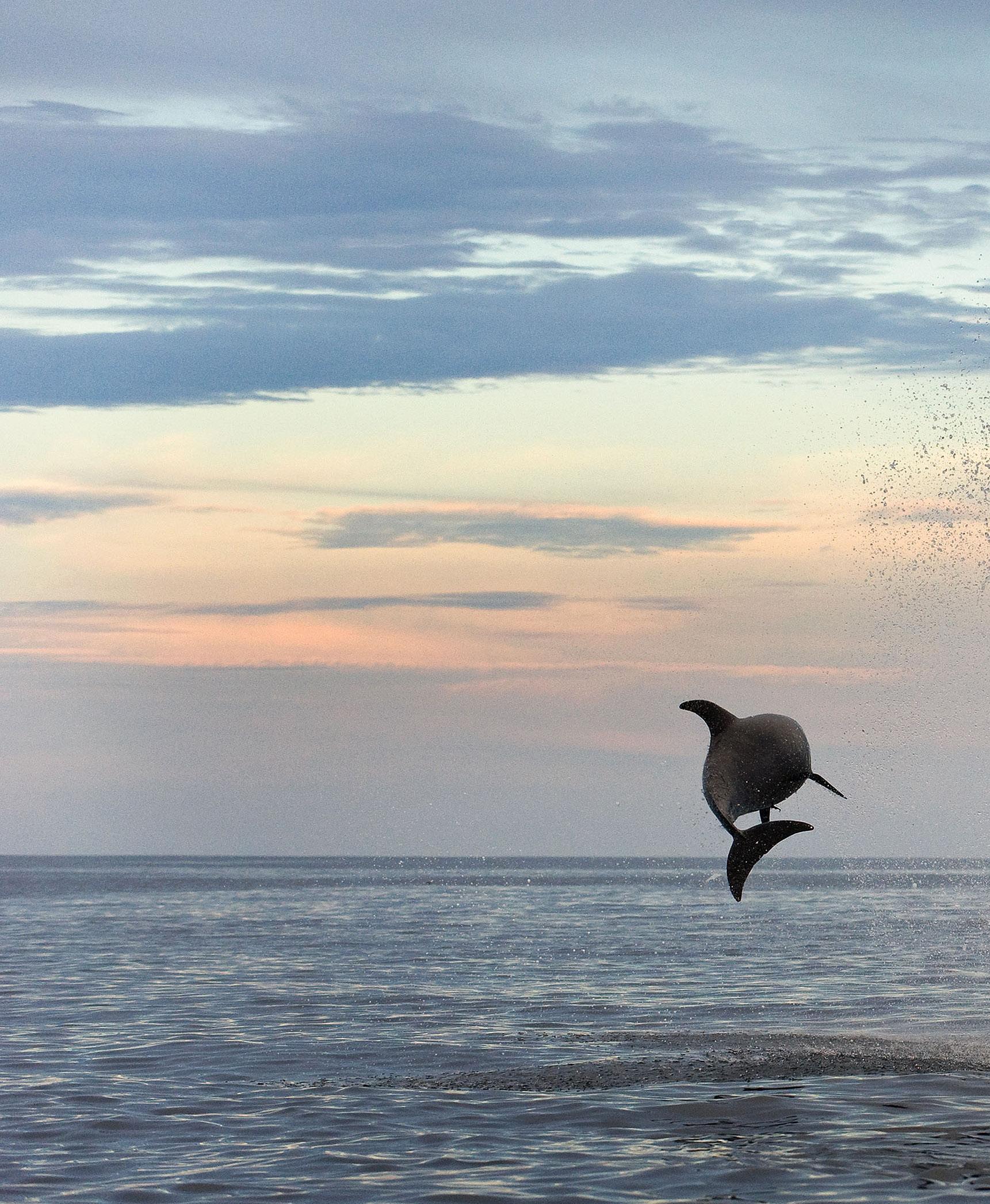
Michaela
on why our work means so much to her
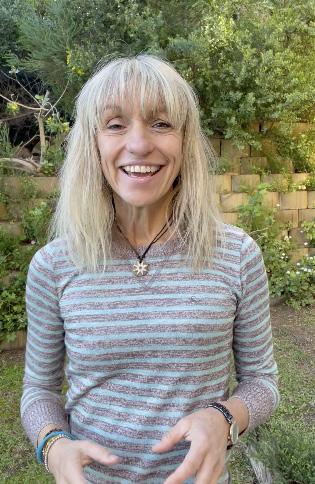
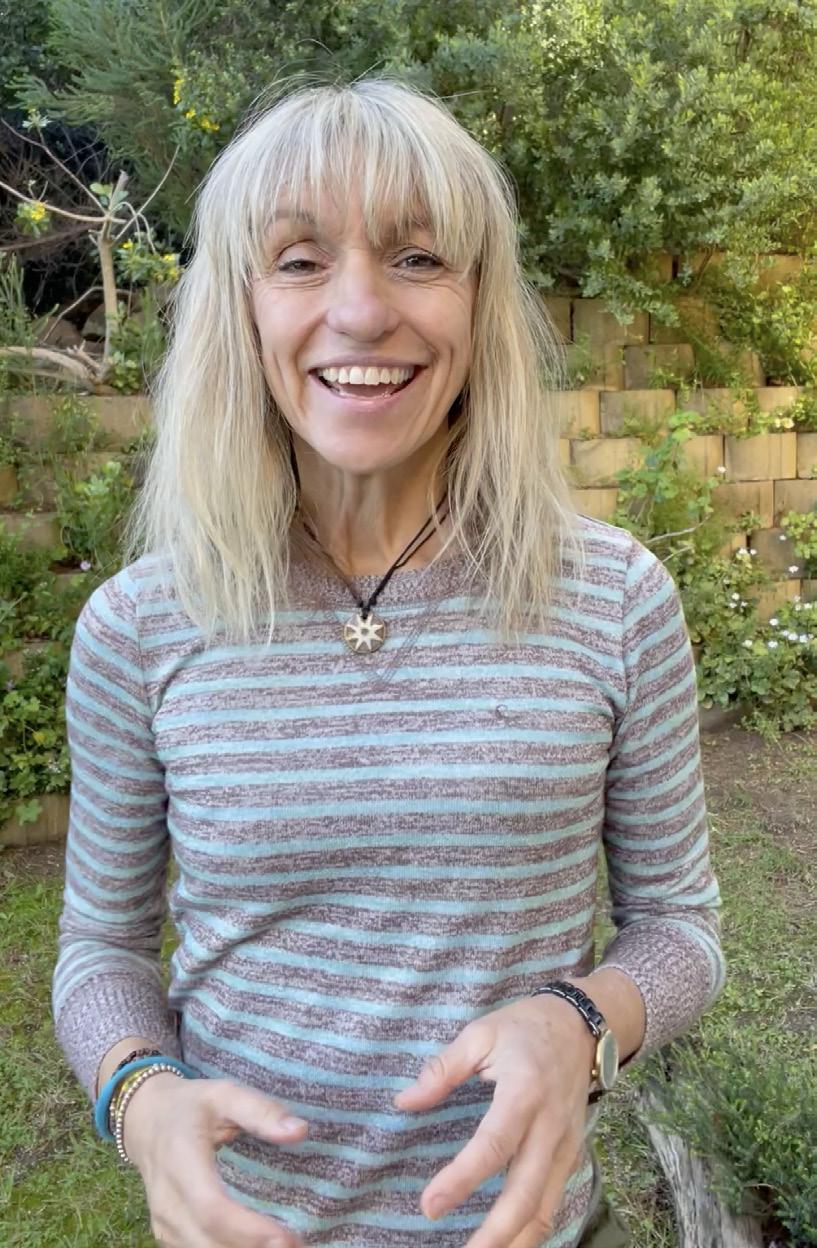
THANK YOU
PATRONS
•Julia Bradbury

•John Craven

•Jerome Flynn

•Monty Halls
•Miranda Krestovnikoff
•Michaela Strachan

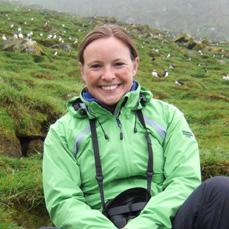
AMBASSADORS
•Sarah Chapman
•Stephen Chapman
•Philip Hoare
•James Schall
•Andrew Sutton
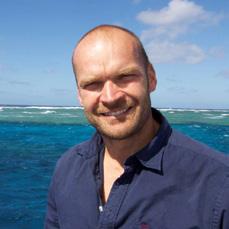
HIGH-PROFILE AND INFLUENTIAL SUPPORTERS
•Charlotte Crosby
•Rick Edwards
•Melissa Hemsley
•Maya Higa
•Emer Kenny
•Joanna Lumley
•Deborah Meaden
•Shawn Mendes
•David Shukman
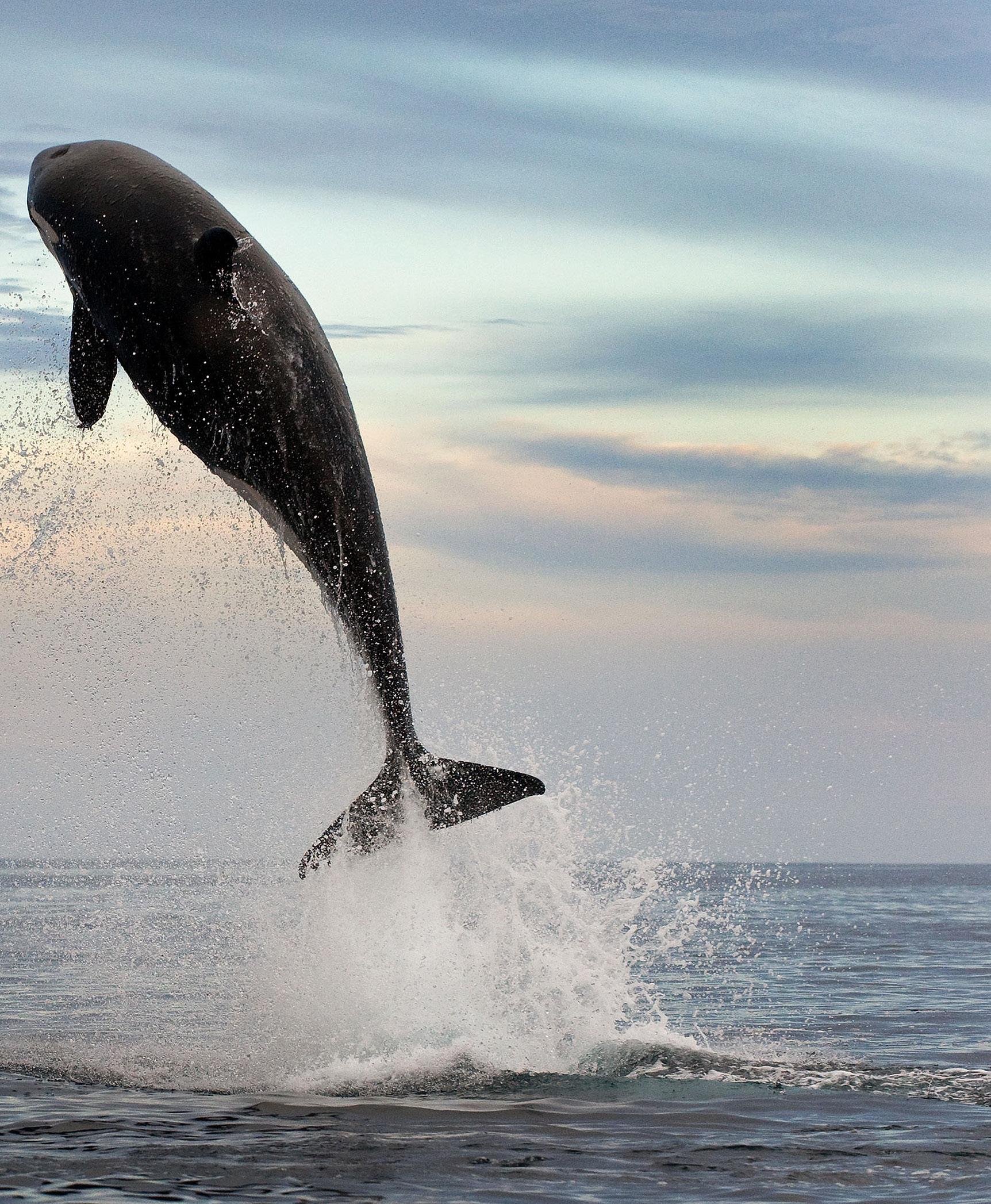
• 11 bit studios
• 39 Pictures
• Amber Group
• Animal Friends Pet Insurance
• Apex Expeditions
• Aquatic Creatures (Design42Day)
• Atawhai Interactive
• Barney Cools
• Big Wild Thought
• BioConsult SC
• Bossa Studios
• BRITA Iberia
• BRITA UK
• Button and Squirt
• Carissa Tanton Illustrations
• Chad Killoran Wildlife Artist
• Chibig Games
• Conran Design Group
• Curve Games
• Deloitte
• Delphis Eco
• Don Fisher
• eBay.co.uk
• Elite Eco Logistics
• Ethical Superstore
• Failbetter Games
• Far From Home Games
• Fellow Traveller
AFFILIATE AND CORPORATE PARTNERS 2022
• Abimerch
• AMF – Architekt Martin Förster
• Architekturbüro Hißler
• Artis promotio
• Baron de Sel
• Beier-Schamberger-Praxis
• Bracenet
• BRITA Benelux
• BRITA China
• BRITA France
• BRITA Schweiz
• BRITA SE
• Bureau Neuland
• Cetacea
• CNS-IT
• Codello
• Das Blaue Klassenzimmer
• Denk-Trade
• Die Umweltdruckerei
• Fink Watches
• Fireblade Software
• Fourth Floor
• Frugi
• GAME
• Gemma Carter Art
• Giant Squid
• GoCardless
• Hatchling Makes
• Helyx
• Honor Code, Inc
• Honu
• Humble Bundle
• Iris (BRITA)
• Itza
• Johanne Lee Author
• Lazy Monday Ltd
• Lexington (BRITA)
• Livework
• Mark Whelan (Havas)
• MCH
• Mercury Learning and Information
• Musto
• Nash & Co
• Nakana Games
• Nordcurrent Labs
• Only Orca
• Orca
• Oxford Strategy Group
• Paralune LLC
• PayPal Giving Fund
• Polar Latitudes
• Popcannibal
• Raw Fury
• Raw London
• Relic Entertainment
• Re:wild
• RSM
• Secret Mode
• SEGA Europe
• Serenity Forge
• Serious Bros
• Silver Nutshell Jewellery
• Slug Disco Studios
• Soaring Pixels
• Sophie Allport
• Splosh
• The Give Back Project
• The Jingle Jam
• The Varsity Matches
• The Working Parts
• The Yogscast
• Thunder Lotus Games
• Tiltify
• Valve Corporation
• Waipapa Bay
• Wevr Inc
• Wild in Art
• Work for Good
• Alpkit Foundation
• The Daniell Trust
• The Flotilla Foundation
• Focused on Nature
• Global Returns Project
• J and J R Wilson Trust
• Joanna Toole Foundation
• The Joan Cullen Charitable Trust
• John Ellerman Foundation
• The Maud Beattie Murchie Charitable Trust
• The Millennium Oak Trust
• The National Lottery Heritage Fund
• Nature Restoration Fund
• NatureScot
• R G Hills Charitable Trust
• The RS Macdonald Charitable Trust
• Stafford Trust
• The St Mary’s Charity
• Visit Scotland
• The Walter Lawrie Trust
• World Wide Fund for Nature Australia
Thank you to all our other artisan and small business partners who choose to support WDC’s work.
• Dive With Us
• Dressgoat
• Fair & Pure
• FairGrapes
• Firma Umlaut
• Giacomini
• Global Reward Solutions
• Heuer
• Cor nelius Horn –Steinmetzmeister
• Ice-back
• IGA Optic
• Imkerei Bienwerk
• InnoSa
• Innovations4learning
• INTEGRTR
• Institut für professionnelles
• Hundetraining
• International Ocean Film Tour
• Junglück
• Kinderwerk Hamburg
• Kindsgut
• KTN
• Lichter der neuen Zeit
• Lilli König –Physiotherapiepraxis
• Logos Support
• Musical Bags
• Neoworx
• New Communication
• ONWO ONOC
• ORCA Affairs
• Orca Brau
• PASSION4IT
• PlastikKunstDING
• Physiotherapie Jung
• Reisebüro Shangri La
• Rittmeyers besondere
• Raffinessen
• RTL
• Salt‘n Fox
• Schanz Kältetechnik
• Skopos
• Solimer
• Stadler Edelstahl
• Stryker
• Studio Good
• Telescope Animation
• Trends for Kids
• tucán y limón
• typocean
• Valentin Software
• Vink Chemicals
• Whaletrips
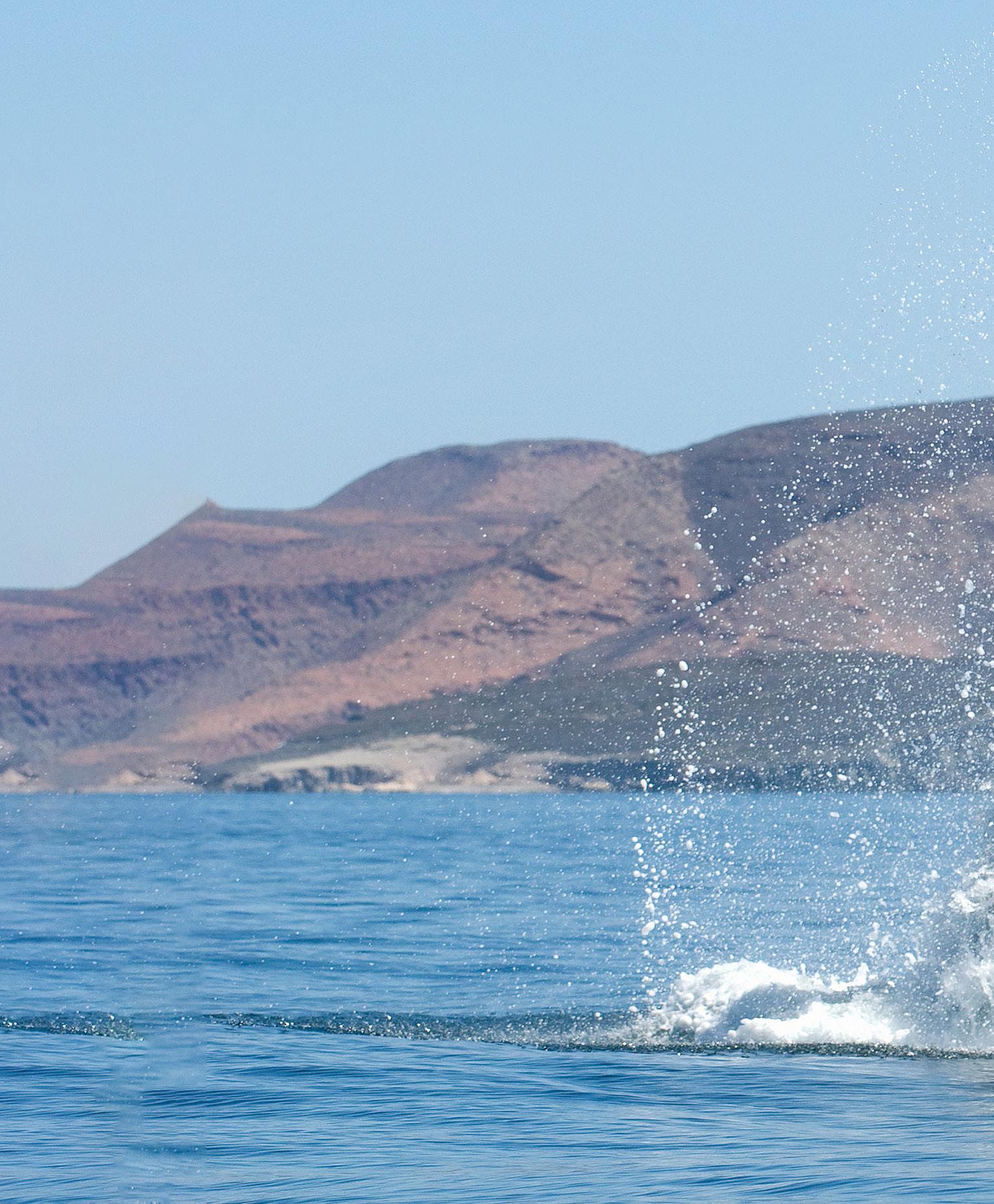
• Windströöm
• Zeitschrift Natur
TRUSTS AND GRANTS 2022
• Merck Finck Stiftung
• Umweltstiftung
Greenpeace
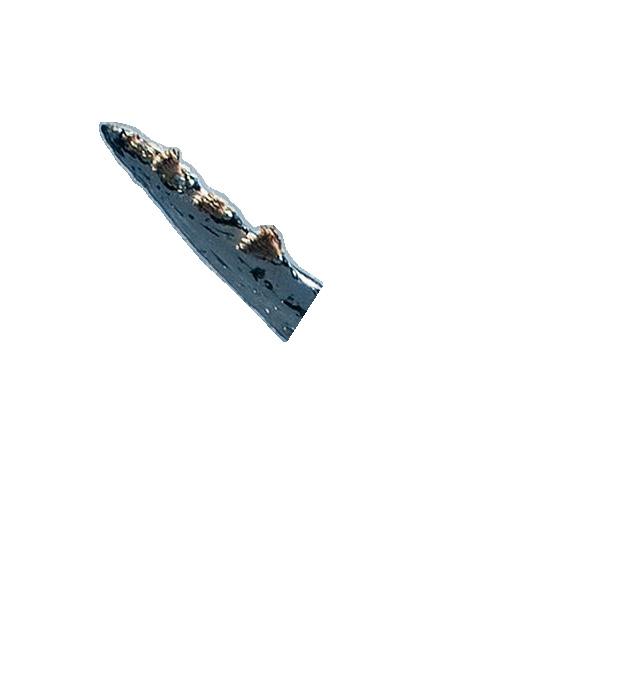
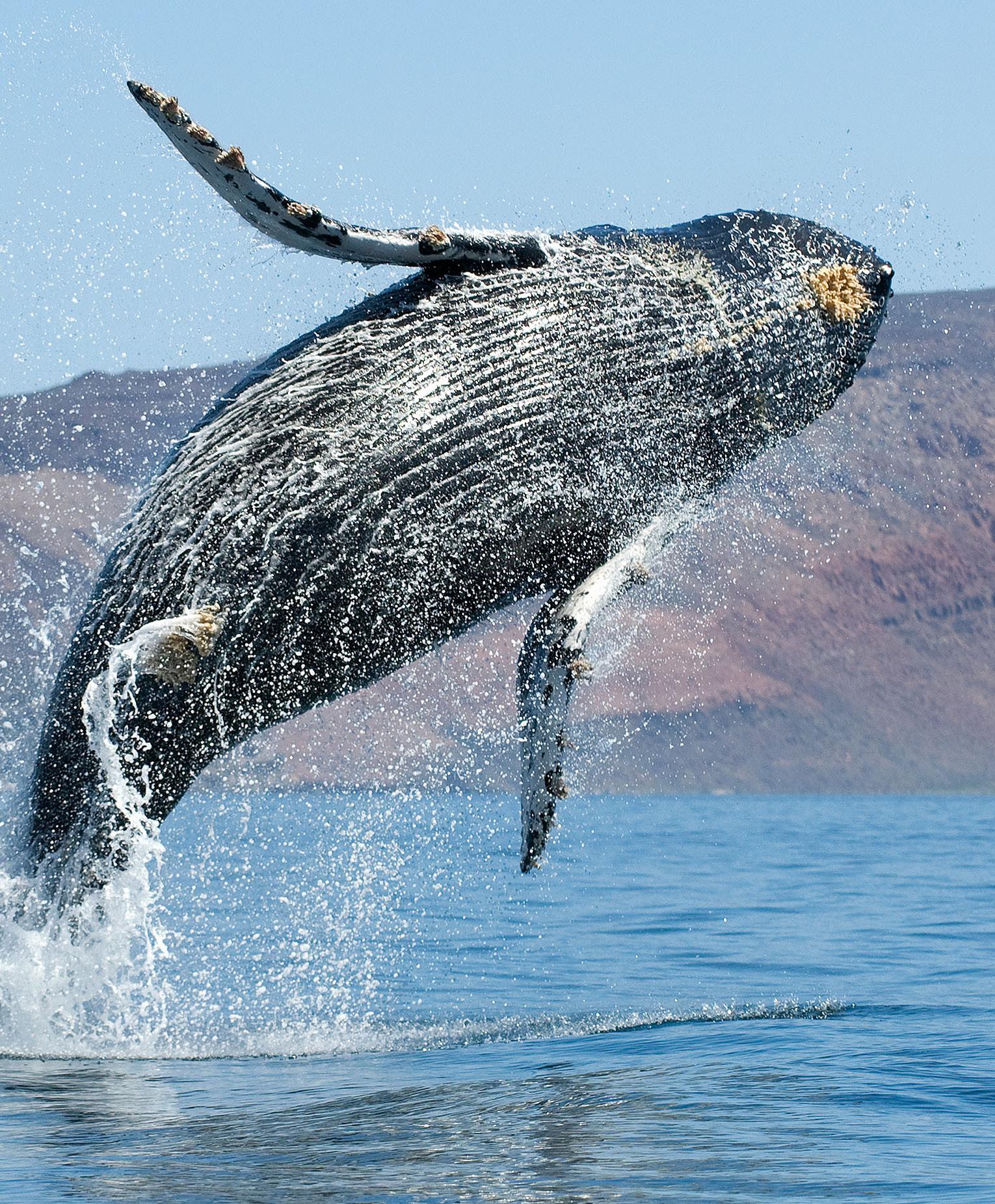
ENGAGING WITH OVER 800,000 FOLLOWERS
Find out more about us and our work. Follow WDC online: @whalesorg
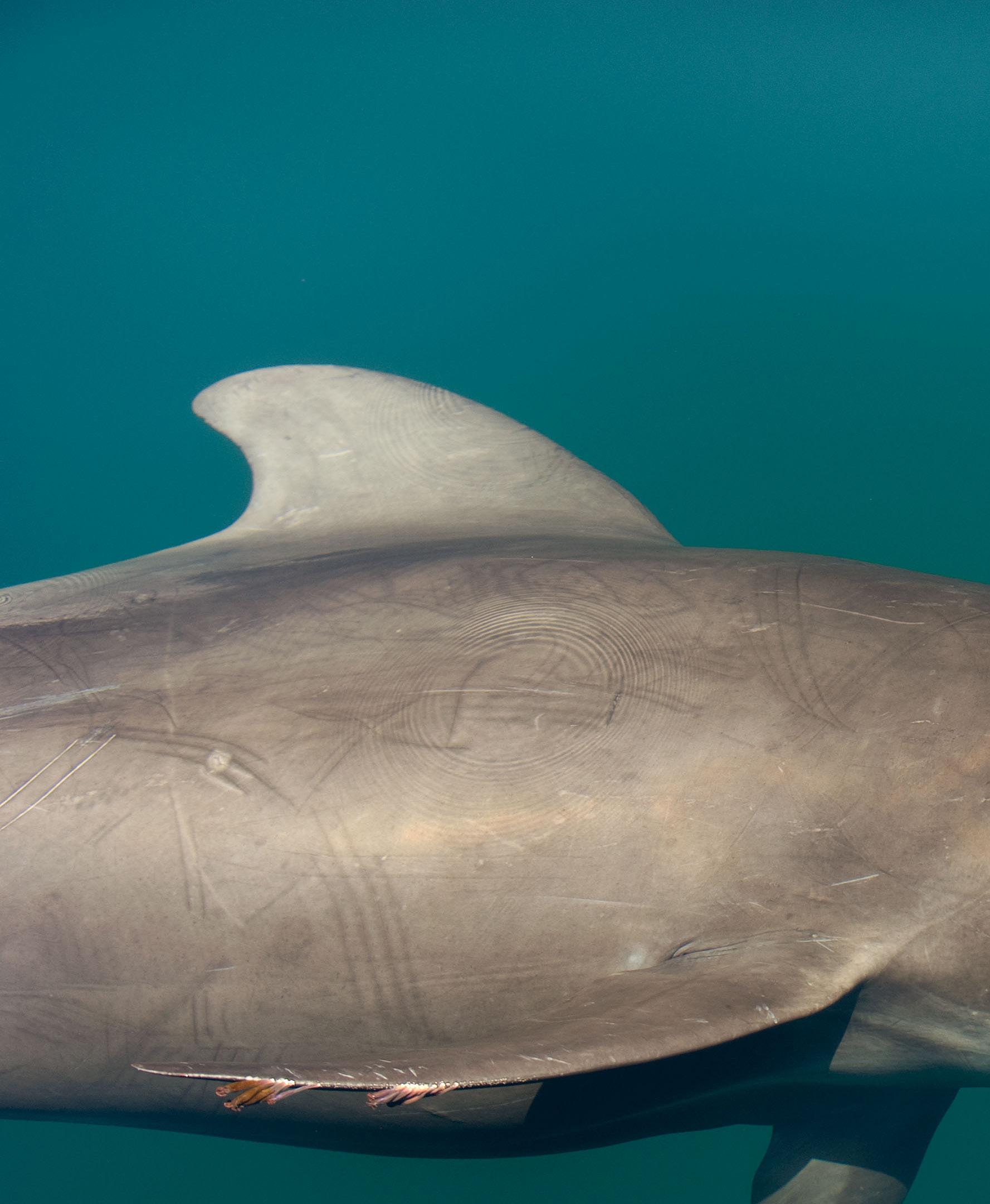
186,806
FOLLOWERS
…AND WE’RE ALSO NOW ON TIKTOK
37,732 FOLLOWERS
65,900 FOLLOWERS
YOUTUBE
4,910 FOLLOWERS
26,784 FOLLOWERS
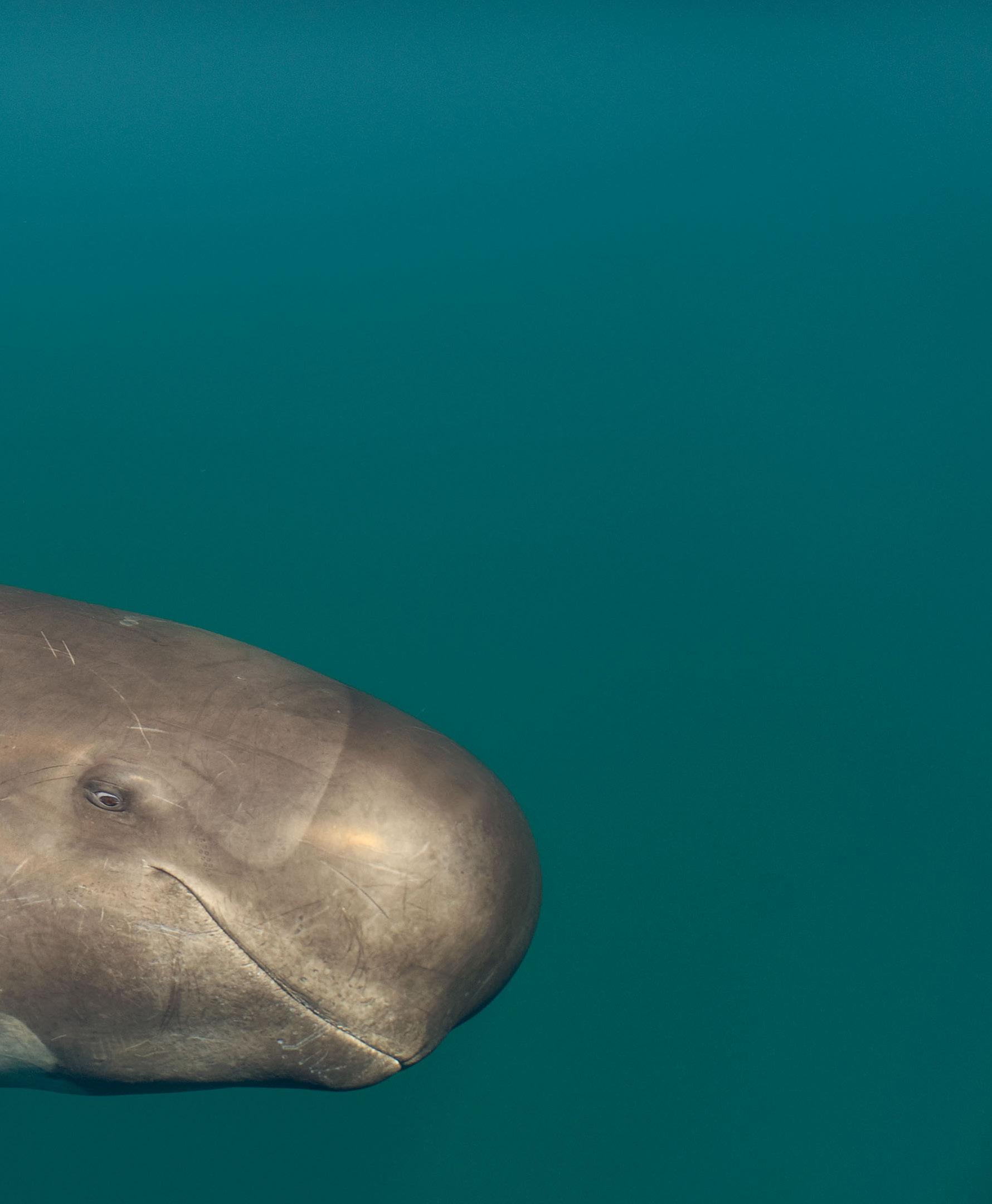
WHALE AND DOLPHIN CONSERVATION
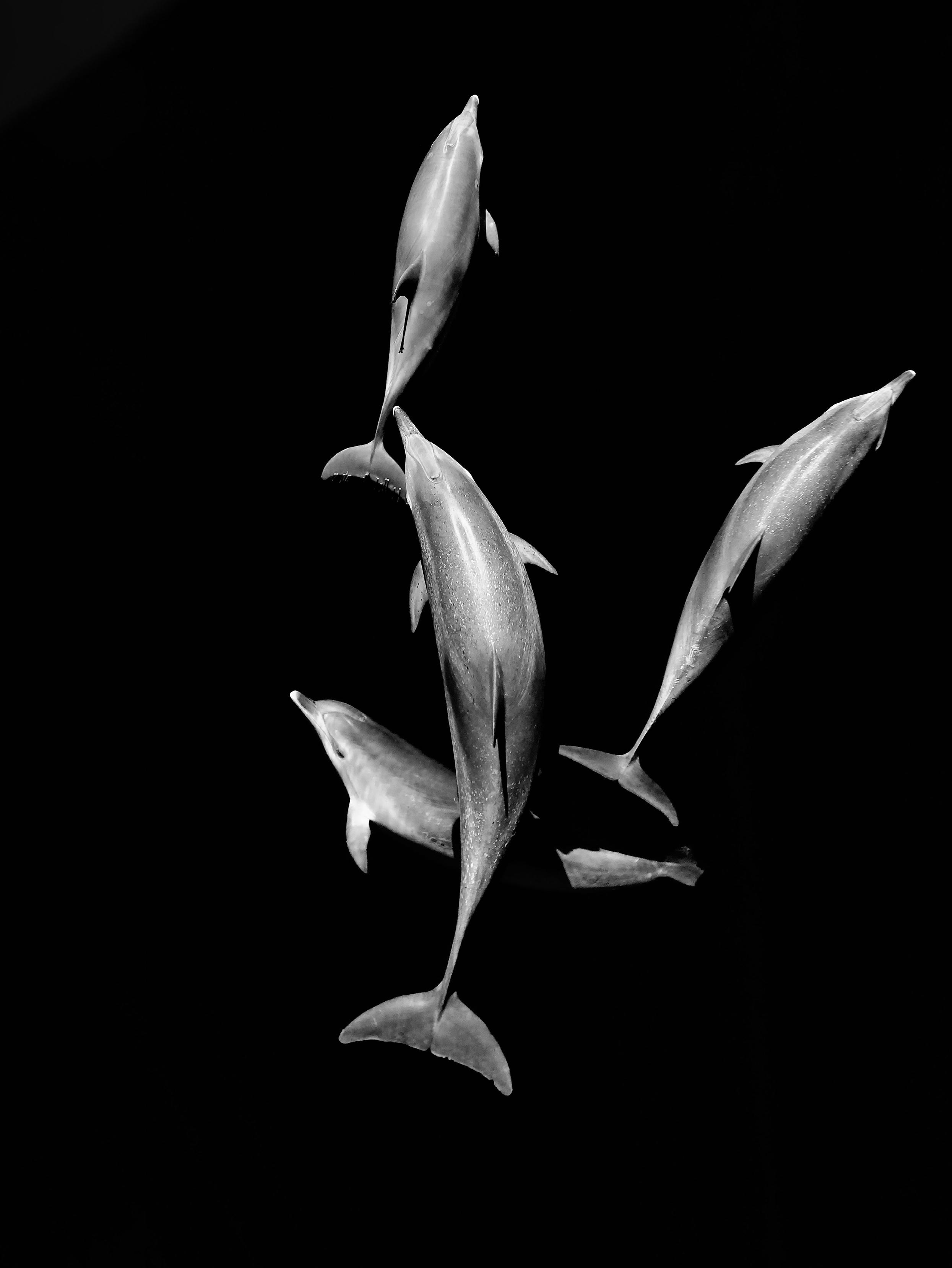
Brookfield House, 38 St Paul Street, Chippenham SN15 1LJ, United Kingdom
+44 (0)1249 449500 info@whales.org whales.org
WDC NORTH AMERICA
7 Nelson Street, Plymouth Massachusetts 02360, United States
+1 888 699 4253 contact@whales.org
WDC DEUTSCHLAND
Implerstr. 55, D81371 Munich, Germany
+49 89 6100 2393 kontakt@whales.org
WDC AUSTRALASIA
PO Box 720, Port Adelaide Business Centre, Port Adelaide, South Australia 5015, Australia
+61 (0)401 866 633 info.au@whales.org
WDC SCOTTISH
DOLPHIN CENTRE
Spey Bay, Moray IV32 7PJ
United Kingdom
+44 (0)1343 820339 dolphincentre@whales.org